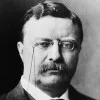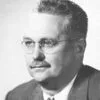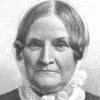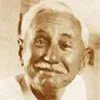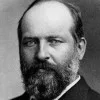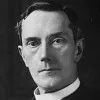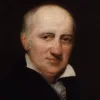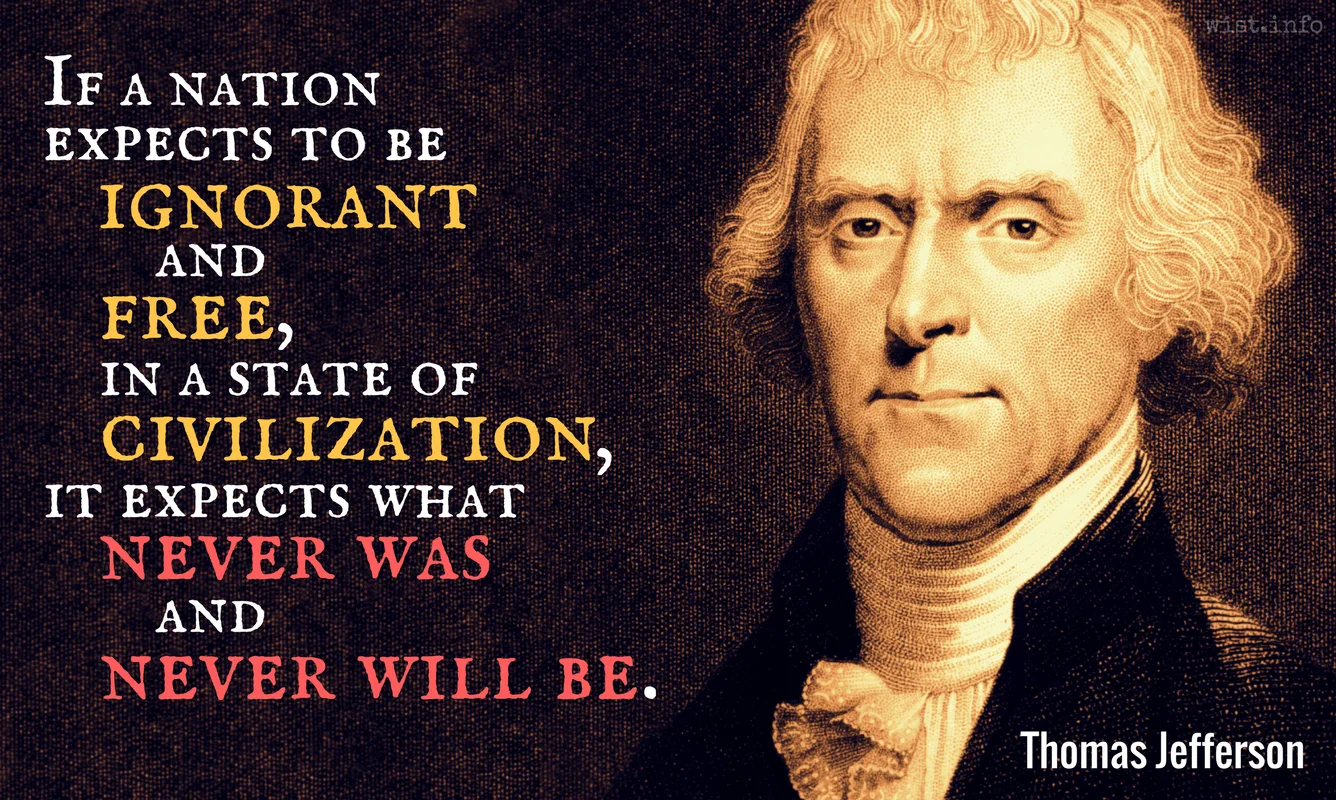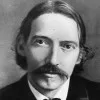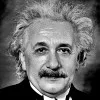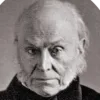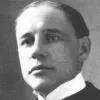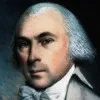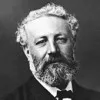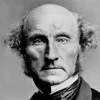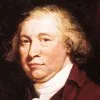All through the Christian ages, and especially since the French Revolution, the Western world has been haunted by the idea of freedom and equality; it is only an idea, but it has penetrated to all ranks of society. The most atrocious injustices, cruelties, lies, snobberies exist everywhere, but there are not many people left who can regard these things with the same indifference as, say, a Roman slave-owner. Even the millionaire suffers from a vague sense of guilt, like a dog eating a stolen leg of mutton. Nearly everyone, whatever his actual conduct may be, responds emotionally to the idea of human brotherhood.
George Orwell (1903-1950) English writer [pseud. of Eric Arthur Blair]
Essay (1939), “Charles Dickens,” sec. 6, Inside the Whale (1940-03-11)
(Source)
Quotations about:
freedom
Note not all quotations have been tagged, so Search may find additional quotes on this topic.
In the future days, which we seek to make secure, we look forward to a world founded upon four essential human freedoms.
The first is freedom of speech and expression — everywhere in the world.
The second is freedom of every person to worship God in his own way — everywhere in the world.
The third is freedom from want — which, translated into world terms, means economic understandings which will secure to every nation a healthy peacetime life for its inhabitants — everywhere in the world.
The fourth is freedom from fear — which, translated into world terms, means a world-wide reduction of armaments to such a point and in such a thorough fashion that no nation will be in a position to commit an act of physical aggression against any neighbor — anywhere in the world.
That is no vision of a distant millennium. It is a definite basis for a kind of world attainable in our own time and generation. That kind of world is the very antithesis of the so-called new order of tyranny which the dictators seek to create with the crash of a bomb.Franklin Delano Roosevelt (1882-1945) American lawyer, politician, statesman, US President (1933-1945)
Speech (1941-01-06) to Congress, Annual Message (State of the Union), “Four Freedoms,” Washington, D. C.
(Source)
FDR's first presentation of his "Four Freedoms" framework.
Principles of morality and considerations for our own security will never permit us to acquiesce in a peace dictated by aggressors and sponsored by appeasers. We know that enduring peace cannot be bought at the cost of other people’s freedom.
Franklin Delano Roosevelt (1882-1945) American lawyer, politician, statesman, US President (1933-1945)
Speech (1941-01-06) to Congress, Annual Message (State of the Union), “Four Freedoms,” Washington, D. C.
(Source)
The liberty we obtain by being members of civilized society, would be licentiousness, if it allowed us to harm others, and slavery, if it prevented us from benefiting ourselves. True liberty, therefore, allows each individual to do all the good he can to himself, without injuring his neighbor.
Charles Caleb "C. C." Colton (1780-1832) English cleric, writer, aphorist
Lacon: Or, Many Things in Few Words, Vol. 1, § 226 (1820)
(Source)
What we want to-day is what our fathers wrote down. They did not attain to their ideal; we approach it nearer, but have not reached it yet. We want, not only the independence of a State, not only the independence of a nation, but something far more glorious — the absolute independence of the individual. That is what we want. I want it so that I, one of the children of Nature, can stand on an equality with the rest; that I can say this is my air, my sunshine, my earth, and I have a right to live, and hope, and aspire, and labor, and enjoy the fruit of that labor, as much as any individual or any nation on the face of the globe.
Robert Green Ingersoll (1833-1899) American lawyer, agnostic, orator
Speech (1876-07-04), “Centennial Oration [The Declaration of Independence],” Peoria, Illinois
(Source)
Not only should there be complete liberty in matters of religion and opinion, but complete liberty for each man to lead his life as he desires, provided only that in so doing he does not wrong his neighbors.
Theodore Roosevelt (1858-1919) American politician, statesman, conservationist, writer, US President (1901-1909)
Speech (1910-04-23), “Citizenship in a Republic [The Man in the Arena],” Sorbonne, Paris
(Source)
LIBERTY, n. One of Imagination’s most precious possessions.
Ambrose Bierce (1842-1914?) American writer and journalist
“Liberty,” The Cynic’s Word Book (1906)
(Source)
Included in The Devil's Dictionary (1911). Originally published in the "Devil's Dictionary" column in the San Francisco Wasp (1886-08-14).
If a nation values anything more than freedom, it will lose its freedom; and the irony of it is that if it is comfort or money that it values more, it will lose that too. And when a nation has to fight for its freedom, it can only hope to win if it possesses certain qualities: honesty, courage, loyalty, vision and self-sacrifice. If it does not possess them, it has only itself to blame if it loses its freedom.
All governments, democracies as well as autocracies, believe that those they seek to punish are guilty; the impediment of constitutional barriers are galling to all governments when they prevent the consummation of that just purpose. But those barriers were devised and are precious because they prevent that purpose and its pursuit from passing unchallenged by the accused, and unpurged by the alembic of public scrutiny and public criticism. A society which has come to wince at such exposure of the methods by which it seeks to impose its will upon its members, has already lost the feel of freedom and is on the path towards absolutism.
Learned Hand (1872-1961) American jurist
United States v. Coplon, 185 F.2d 629 (2d Cir. 1950) [majority opinion]
(Source)
If the man works for evil, then the more successful he is the more he should be despised and condemned by all upright and farseeing men. To judge a man merely by success is an abhorrent wrong; and if the people at large habitually so judge men, if they grow to condone wickedness because the wicked man triumphs, they show their inability to understand that in the last analysis free institutions rest upon the character of citizenship, and that by such admiration of evil they prove themselves unfit for liberty.
Theodore Roosevelt (1858-1919) American politician, statesman, conservationist, writer, US President (1901-1909)
Speech (1910-04-23), “Citizenship in a Republic [The Man in the Arena],” Sorbonne, Paris
(Source)
They call for freedom and then they attack the courts which protect that freedom.
They call for freedom and they would strip away the rights of those accused of crime, rights developed over centuries to protect against arbitrary power.
They call for freedom and yet accuse their opponents of being soft on communism or even worse, branding as heretics or traitors all those who ever disagree with them.
They call for freedom and they attack our religious leaders for trying to exercise their ancient responsibility — as clergymen and citizens — to guide people in the course of life.
But worst of all, they call for freedom and yet they help create the atmosphere of hate and fear and suspicion in which individual liberty faces its maximum danger.Lyndon B. Johnson (1908-1973) American politician, educator, US President (1963-69)
Speech (1964-10-31), Presidential Campaign, Madison Square Garden, New York City
(Source)
On the Republican Goldwater/Miller ticket and their supporters during the 1964 elections.
Hee that marries for wealth sells his liberty.
George Herbert (1593-1633) Welsh priest, orator, poet.
Jacula Prudentum, or Outlandish Proverbs, Sentences, &c. (compiler), # 784 (1640 ed.)
(Source)
Everywhere the human soul stands between a hemisphere of light and another of darkness on the confines of two everlasting hostile empires, — Necessity and Free Will.
Thomas Carlyle (1795-1881) Scottish essayist and historian
Essay (1832-08), “Goethe’s Works,” Foreign Quarterly Review, No. 19, Art. 1
(Source)
A review of Goethes Werke. Vollständige Ausgabe letzer Hand [Goethe's Works. Completed, Final Edition (1827-1830). Reprinted in Carlyle, Critical and Miscellaneous Essays (1845).
This college, therefore, from its earliest beginnings, has recognized and its graduates have recognized, that the purpose of education is not merely to advance the economic self-interest of its graduates. The people of California, as much if not more than the people of any other State, have supported their colleges and universities and their schools because they recognize how important it is to the maintenance of a free society that its citizens be well educated.
John F. Kennedy (1917-1963) US President (1961-63)
Speech (1962-03-23), University of California, Berkeley
(Source)
To give up the task of reforming society is to give up one’s responsibility as a free man. The task itself is endless, and large parts of it, sometimes the whole of it, must be performed anew by each succeeding generation.
One hundred years ago, the slave was freed. One hundred years later, the Negro remains in bondage to the color of his skin. The Negro today asks justice. We do not answer him — we do not answer those who lie beneath this soil — when we reply to the Negro by asking, “Patience.”
Lyndon B. Johnson (1908-1973) American politician, educator, US President (1963-69)
Speech (1963-05-30), Memorial Day, Gettysburg, Pennsylvania
(Source)
As far as your self-control goes, as far goes your freedom.
[So weit Deine Selbstbeherrschung geht, so weit geht Deine Freiheit.]
Marie von Ebner-Eschenbach (1830-1916) Austrian writer
Aphorisms [Aphorismen], No. 534 (1880)
(Source)
(Source (German)). Alternate translation:Freedom stretches as far as your self-control.
[tr. Scrase/Mieder (1994)]
DISOBEDIENCE, n. The silver lining to the cloud of servitude.
Ambrose Bierce (1842-1914?) American writer and journalist
“Disobedience,” The Cynic’s Word Book (1906)
(Source)
Included in The Devil's Dictionary (1911). Originally published in the "Devil's Dictionary" column in the San Francisco Wasp (1882-04-02).
For ourselves and for the present, we are safe; our immediate peril is past. But for how long are we safe; and how far have we removed our peril? If our nation could not itself exist half slave and half free, are we sure that it can exist in a world half slave and half free? Is the same conflict less irrepressible when world wide than it was eighty years ago when it was only nation wide? Right knows no boundaries, and justice no frontiers; the brotherhood of man is not a domestic institution.
Learned Hand (1872-1961) American jurist
“A Pledge of Allegiance,” speech, Central Park, New York City (1945-05-20)
(Source)
His second "I Am an American Day" address. Collected in The Spirit of Liberty (1953).
Yet they, believe me, who await
No gifts from chance, have conquered fate.Matthew Arnold (1822-1888) English poet and critic
“Resignation,” The Strayed Reveller and Other Poems (1848)
(Source)
When you take the wires of the cage apart, you do not hurt the bird, but help it. You let it out of its prison. How do vou know that death does not help me when it takes the wires of my cage down? — that it does not release me, and put me into some better place, and better condition of life?
Randolph S. Foster (1820-1903) American Methodist Episcopal bishop, preacher, educator
“Man a Spiritual Being,” Lecture 2, Chautauqua, New York (1878)
(Source)
Collected in his Beyond the Grave: Being Three Lectures Before Chautauqua Assembly in 1878 (1879).
Nationality is a Janus, facing both ways. So far as it stands for the right of a people to govern itself, it stands for freedom. So far as it stands for the ambition to govern other people, or to destroy them, or to shape them into an alien world, it stands for domination. Throughout history it has stood for both.
G. Lowes Dickinson (1862-1932) British political scientist and philosopher [Goldsworthy "Goldie" Lowes Dickinson]
“The War and the Way Out: A Further Consideration,” sec. 3, Atlantic Monthly (1915-04)
(Source)
The other threat to the security of our tradition, I believe, lies at home. It is the current fear of radical ideas and of people who propound them. I do not agree with extremists of either the left or the right, but I think they should be allowed to speak and to publish, both because they themselves have, and ought to have, rights, and once their rights are gone, the rights of the rest of us are hardly safe.
Jane Jacobs (1916-2006) American-Canadian journalist, author, urban theorist, activist
“No Virtue in Meek Conformity” (1952)
(Source)
Foreword to her response to a State Department Loyalty Security Board interrogatory (1952-03-25). Reprinted in Vital Little Plans (2016).
Perish all they who love to dwell in cities
subject to Kings, or to the mighty few,
For Freedom’s an invaluable name,
and he who hath but little, here is rich.[κακῶς δ’ ὄλοιντο πάντες οἳ τυραννίδι
χαίρουσιν ὀλίγῃ τ’ ἐν πόλει μοναρχίᾳ·
τοὐλεύθερον γὰρ ὄνομα παντὸς ἄξιον,
κἂν σμίκρ’ ἔχῃ τις, μεγάλ’ ἔχειν νομιζέτω.]Euripides (485?-406? BC) Greek tragic dramatist
Auge [Αὐγῃ], fr. 275 (TGF) (c. 408 BC) [tr. Wodhall (1809)]
(Source)
Nauck frag. 275, Barnes frag. 10, Musgrave frag. 7. (Source (Greek)). Alternate translations:Pray that all who rejoice in tyranny,
Or in some small monarchy in their city, die terribly.
The name "freedom" is worth everything --
Even if he possesses a little, a man who has this is considered great.
[@sententiq (2015)]Worth above all is a name fit for the free.
[Source]
I was brought up to believe that there is no virtue in conforming meekly to the dominant opinion of the moment. I was encouraged to believe that simple conformity results in stagnation for a society, and that American progress has been largely owing to the opportunity for experimentation, the leeway given initiative, and to a gusto and a freedom for chewing over odd ideas. I was taught that the American’s right to be a free individual, not at the mercy of the state, was hard-won and that its price was eternal vigilance, and that I too would have to be vigilant. I was made to feel that it would be a disgrace to me, as an individual, if I should not value or should give up rights that were dearly bought.
Jane Jacobs (1916-2006) American-Canadian journalist, author, urban theorist, activist
“No Virtue in Meek Conformity” (1952)
(Source)
Foreword to her response to a State Department Loyalty Security Board interrogatory (1952-03-25). Reprinted in Vital Little Plans (2016).
A wise man neither lets himself be governed nor seeks to govern others: he wishes reason alone to govern, and for ever.
[Un homme sage ni ne se laisse gouverner, ni ne cherche à gouverner les autres: il veut que la raison gouverne seule et toujours.]
Jean de La Bruyère (1645-1696) French essayist, moralist
The Characters [Les Caractères], ch. 4 “Of the Heart [Du Coeur],” § 71 (4.71) (1688) [tr. Stewart (1970)]
(Source)
(Source (French)). Alternate translations:A Wise Man neither suffers himself to be govern'd, nor attempts to govern others. 'Tis his reason alone which always governs him.
[Bullord ed. (1696)]A Wise Man neither suffers himself to be govern'd, nor attempts to govern others. He wou'd have Reason alone always to govern him.
[Curll ed. (1713)]An intelligent man neither allows himself to be controlled nor attempts to control others; he wishes reason alone to rule, and that always.
[tr. Van Laun (1885)]
There are some men who listen neither to reason nor to good advice, and who deliberately go astray through fear of being dominated.
[Il se trouve des hommes qui n’écoutent ni la raison ni les bons conseils, et qui s’égarent volontairement par la crainte qu’ils ont d’être gouvernés.]
Jean de La Bruyère (1645-1696) French essayist, moralist
The Characters [Les Caractères], ch. 4 “Of the Affections [Du Coeur],” § 71 (4.71) (1688) [tr. Stewart (1970)]
(Source)
(Source (French)). Alternate translations:There are those men who will not hearken to reason, or good council, but deviate of their own Heads, purely for fear of being govern'd.
[Bullord ed. (1696)]There are some Men who will not hearken to Reason and good Counsel, but deviate of their own Heads, purely for fear of being govern'd.
[Curll ed. (1713)]There are some Men who turn the deaf Ear to Reason and friendly Counsel, and play the Fool of their own Heads, purely for fear of being governed.
[Browne ed. (1752)]There are some men who turn a deaf ear to reason and good advice, and willfully go wrong for fear of being controlled.
[tr. Van Laun (1885)]
The superstition into which we’re born,
Even when we recognize it, loses not
Its power on us! Not all those are free
Who ridicule their chains.[Der Aberglaub’, in dem wir aufgewachsen,
Verliert, auch wenn wir ihn erkennen, darum
Doch seine Macht nicht über uns. — Es sind
Nicht alle frei, die ihrer Ketten spotten.]Gotthold Lessing (1729-1781) German playwright, philosopher, dramaturg, writer
Nathan the Wise [Nathan der Weise], Act 4, sc. 4 [Templar] (1779) [tr. Corbett (1883)]
(Source)
(Source (German)). Alternate translations:Yet the superstition
in which we have grown up, not therefore loses
when we detect it, all its influence on us.
Not all are free that can bemock their fetters.
[tr. Taylor (1790)]The superstition in which we grew up,
Does not cease influencing us, e'en after
We have discover'd its absurdity.
Not all are free who do bemock their fetters.
[tr. Reich (1860)]The superstition in which we were brought up never loses its power over us, even after we understand it.
[Source (1866)]And yet the superstitions we have learned
From education, do not lose their power
When we have found them out; nor are all free
Whose judgment mocks the galling chains they wear.
[tr. Boylan (1878)]The superstition in which we have grown up
Does not lose (even if we see through it)
Its power on us, on that account;
All are not free who mock their chains.
[tr. Jacks (1894)]The superstitions of our early years,
E'en when we know them to be nothing more,
Lose not for that their hold upon our hearts;
Not all are free who ridicule their chains.
[tr. Maxwell (1917)]The superstition in which we have grown up does not lose its power over us even for the reason that we recognize it as such. Not all are free who mock their chains.
[tr. Reinhardt (1950)]The superstition in which we grew up,
Though we may recognize it, does not lose
Its power over us -- Not all are free
Who make mock of their chains.
[tr. Morgan (1955)]Merely because we see the defects of the superstition we grew up in, it doesn't lose its hold upon our souls! Those men who mock their chains are not all free!
[tr. Ade (1972)]
Liberty trains for liberty. Responsibility is the first step in responsibility.
W. E. B. Du Bois (1868-1963) American writer, historian, social reformer [William Edward Burghardt Du Bois]
John Brown, ch. 13 “The Legacy of John Brown” (1909)
(Source)
On the policy among white colonial powers that non-whites "ought to be under the restraint and benevolent tutelage of stronger and wiser nations for their own benefit," until they are "capable" of being free.
No form of liberty is worth a darn which doesn’t give us the right to do wrong now and then.
H. L. Mencken (1880-1956) American writer and journalist [Henry Lewis Mencken]
A Little Book in C Major, ch. 3, § 16 (1916)
(Source)
A wise woman once said to me that there are only two lasting bequests we can hope to give our children. One of these she said is roots, the other, wings.
Hodding Carter II (1907-1972) American journalist and author [William Hodding Carter II]
Where Main Street Meets the River, “It’s How We Like It” (1953)
(Source)
Almost always quoted without the notes about the "wise woman," e.g.,There are only two lasting bequests we can hope to give our children: one of these is roots, the other, wings.
On the necessary points, unity. On the questionable points, liberty. In everything, love.
Augustine of Hippo (354-430) Christian church father, philosopher, saint [b. Aurelius Augustinus]
(Misattributed)
A commentary on theological / doctrinal dispute, frequently attributed to Augustine, but not found in his works.
The first known occurrence of such an expression is in Marco Antonio de Dominis, De Republica Ecclesiastica, Book 4, ch. 8, penultimate sentence (1617):Omnesque mutuam amplecteremur unitatem in necessariis, in non necessariis libertatem, in omnibus caritatem.
[And let us all embrace one another, unity in what is necessary, liberty in what is not necessary, charity in all things.]
The phrase was also adapted by Richard Baxter (1615-1691) as his motto. See also Rupertus Meldenius (1626).
More discussion about this quotation here: Liber locorum communium: In necessariis unitas, in non necessariis libertas, in utrisque caritas (Marco Antonio De Dominis, 1617), cf. In necessariis unitas, in dubiis libertas, in omnibus caritas (and other variants). English: "In essentials unity ..."
For Freedom’s battle once begun,
Bequeathed by bleeding Sire to Son,
Though baffled oft is ever won.
We are neither “warmongers” nor “appeasers,” neither “hard” nor “soft.” We are Americans, determined to defend the frontiers of freedom, by an honorable peace if peace is possible, but by arms if arms are used against us. And if we are to move forward in that spirit, we shall need all the calm and thoughtful citizens that this great University can produce, all the light they can shed, all the wisdom they can bring to bear. It is customary, both here and around the world, to regard life in the United States as easy. Our advantages are many. But more than any other people on earth, we bear burdens and accept risks unprecedented in their size and their duration, not for ourselves alone but for all who wish to be free.
John F. Kennedy (1917-1963) US President (1961-63)
Speech, Centennial Celebration, University of Washington, Seattle (1961-11-16)
(Source)
We want perfection in other people, and yet we do not put right our own failings. We want to see others firmly corrected, but we refuse correction ourselves. We take offence when permission is given to others, but we do not want our own requests refused. We want rules to check the activities of others, but we are indignant at restrictions on ourselves.
[Libenter videmus alios perfectos, sed tamen proprios non emendamus defectus. Volumus quod alii districte corrigantur, et nos ipsi corrigi nolumus, aut negari quod petimus. Alios restringi per statuta volumus, et ipsi nullatenus patimur amplius cohiberi.]
Thomas à Kempis (c. 1380-1471) German-Dutch priest, author
The Imitation of Christ [De Imitatione Christi], Book 1, ch. 16, v. 2ff (1.16.2-3) (c. 1418-27) [tr. Knott (1962)]
(Source)
(Source (Latin)). Alternate translations:We would gladly have others perfect, but will not amend our own defaults. We would that others should be straitly corrected for their offences, but we will not be corrected. It misliketh us that others have liberty, but we will not be denied of that we ask. We would also that others should be restrained according to the statutes, but we in nowise will be restrained.
[tr. Whitford/Raynal (1530/1871)]We would gladly have others perfect, yet we will not amend our own faults. We desire others to be strictly corrected for their offenses, yet we will not be corrected. We dislike it that others have liberty, yet we will not be denied what we ask. We desire that others should be restrained according to the laws, yet we will in no way be restrained.
[tr. Whitford/Gardiner (1530/1955)]It is injustice to expect that in another which thou hast not in thy self, to looke for perfection in others, and yet not to amend imperfections in our selves. We will have others severely punisht, and will not amend our selves; the large liberty of others disliketh us, and yet we will not have our desires deni'd us, we will have rigorous Lawes imposed upon others, but in no sort will we our selves be restrained.
[tr. Page (1639), 1.16.8-9]And, indeed, nothing is more common, than to express exceeding Zeal in amending our Neighbours, and mighty Indignation against Their Vices or Imperfections, while at the same time we neglect the beginning at Home, and either quite overlook, or seem highly contented with our own. We set up for Reformers, declaim at the Wickendess of the Age, and are all for suppressing and punishing it by vigorous Laws; and yet are unwilling that any Check or Restraint should be put upon our own Freedoms.
[tr. Stanhope (1696; 1706 ed.)]But we require perfection in the rest of mankind, and take no care to rectify the disorders of our own heart; we desire that the faults of others should be severely punished, and refuse the gentlest correction ourselves; we are offended at their licentiousness, and yet cannot bear the least opposition to our own immoderate desires. We would subject all to the control of rigorous statute and penal laws, but will not suffer any restraint upon our own actions.
[tr. Payne (1803), 1.16.3]We would willingly have others perfect, and yet we amend not our own faults. We will have others severely corrected, and will not be corrected ourselves. The large liberty of others displeaseth us; and yet we will not have our own desires denied us. We will have others kept under by strict laws; but in no sort will ourselves be restrained.
[ed. Parker (1841)]We willingly require perfection in the rest of mankind, and yet do not rectify the disorders of our own hearts. We desire that the faults of others should be severely punished, and refuse the gentlest correction ourselves. We are offended at their licentiousness, and yet cannot bear the least denial of our own immoderate desires. We would subject all to the control of rigorous statutes, but suffer no restraint upon our own action.
[tr. Dibdin (1851)]We would fain have others perfect, and yet we amend not our own defects. We would have others strictly corrected, but will not be corrected ourselves. The large liberty of others displeases us, and yet we would not be denied anything we ask for. We wish others to be bound down by laws, and we suffer ourselves to be in no sort restrained.
[ed. Bagster (1860)]We are ready to see others made perfect, and yet we do not amend our own shortcomings. We will that others be straitly corrected, but we will not be corrected ourselves. The freedom of others displeaseth us, but we are dissatisfied that our own wishes shall be denied us. We desire rules to be made restraining others, but by no means will we suffer ourselves to be restrained.
[tr. Benham (1874)]We are desirous to have others perfect, and yet we amend not our own faults. We will have others severely corrected, and will not be corrected ourselves. The large liberty of others displeaseth us; and yet we will not have our own desires denied us. We will have others kept under by strict laws; but in no sort will we ourselves be restrained.
[tr. Anon. (1901)]We want them to be perfect, yet we do not correct our own faults. We wish them to be severely corrected, yet we will not correct ourselves. Their great liberty displeases us, yet we would not be denied what we ask. We would have them bound by laws, yet we will allow ourselves to be restrained in nothing.
[tr. Croft/Bolton (1940)]We would readily have others perfect and yet not amend our own defects. We want others rigidly corrected and are unwilling to be corrected ourselves. The wide freedom of others displeases us, and yet we would not be denied whatever we ask. We wish others to be bound by rules, and will ourselves in no way be held in.
[tr. Daplyn (1952)]For we require other people to be perfect, but do not correct our own faults. We wish to see others severely reprimanded; yet we are unwilling to be corrected ourselves. We wish to restrict the liberty of others, but are not willing to be denied anything ourselves. We wish others to be bound by rules, yet we will not let ourselves be bound.
[tr. Sherley-Price (1952)]We like to have everybody around us quite perfect, but our own faults -- we never seem to correct them. Tom, Dick and Harry must be strictly called to order, but we aren't fond of being called to order ourselves. It is always the other man that has too much rope given him -- our wishes must not be thwarted; rules for everybody else, but our own liberties must not be abridged for a moment.
[tr. Knox-Oakley (1959), 1.16.3]Though quick to expect perfection in others, we take little care to correct our own shortcomings. We wouidl have others strictly corrected, but not ourselves. The wide freedom of others displeases us, yet we wish to be denied nothing that we ourselves desire. We would have others under the restraint of the rule while unwilling ourselves to be under any sort of restraint.
[tr. Rooney (1979)]We would willingly have others be perfect, and yet we fail to correct our own faults. We want others to be strictly corrected, and yet we are unwilling to be corrected ourselves. Other peoples' far-ranging freedom annoys us, and yet we insist on having our own way. We wish others to be tied down by rules, and yet we will not allow ourselves to be held in check in any way at all.
[tr. Creasy (1989)]
The United States is not a beacon, not a light of freedom! She is a warning, rather than an example to the world!
Lydia Maria Child (1802-1880) American abolitionist, activist, journalist, suffragist
Speech, Massachusetts Anti-Slavery Society 25th Anniversary Conference (1857)
(Source)
On slavery in the US, two months before the Dredd Scott decision.
Almost always elided as "The United States ... is a warning, rather than example to the world."
Liberal learning is both a safeguard against false ideas of freedom and a source of true ones.
Whitney Griswold (1906–1963) American historian, educator [Alfred Whitney Griswold]
“Freedom, Security, and the University Tradition,” speech, Columbia University Bicentennial (1954-06-02)
(Source)
Reprinted in Griswold, In the University Tradition (1957).
Quoted by John F. Kennedy in a speech at Yale University (1962-06-11). Citations of Kennedy for the quote are far more common than for Griswold's original.
That man’s best works should be such bungling imitations of Nature’s infinite perfection, matters not much; but that he should make himself an imitation, this is the fact which Nature moans over, and deprecates beseechingly. Be spontaneous, be truthful, be free, and thus be individuals! is the song she sings through warbling birds, and whispering pines, and roaring waves, and screeching winds.
Lydia Maria Child (1802-1880) American abolitionist, activist, journalist, suffragist
Letters from New-York, # 38, 1843-03-17 (1843)
(Source)
To do good to mankind is the chivalrous plan,
And is always as nobly requited;
Then battle for freedom wherever you can.
And, if not shot or hang’d, you’ll get knighted.
The First Amendment is truly the heart of the Bill of Rights. The Framers balanced its freedoms of religion, speech, press, assembly and petition against the needs of a powerful central government, and decided that in those freedoms lies this nation’s only true security. They were not afraid for men to be free. We should not be.
Hugo Black (1886-1971) American politician and jurist, US Supreme Court Justice (1937-71)
James Madison Lecture, NYU School of Law (1960-02-17)
(Source)
The inaugural Madison lecture. Reprinted as "The Bill of Rights," NYU Law Review, Vol. 35 (1960-04).
Since the earliest days, philosophers have dreamed of a country where the mind and spirit of man would be free; where there would be no limits to inquiry; where men would be free to explore the unknown and to challenge the most deeply rooted beliefs and principles. Our First Amendment was a bold effort to adopt this principle — to establish a country with no legal restrictions of any kind upon the subjects people could investigate, discuss, and deny.
Hugo Black (1886-1971) American politician and jurist, US Supreme Court Justice (1937-71)
James Madison Lecture, NYU School of Law (1960-02-17)
(Source)
The inaugural Madison lecture. Reprinted as "The Bill of Rights," NYU Law Review, Vol. 35 (Apr 1960)
I would rather go to hell by choice than to stumble into heaven by following the crowd.
Benjamin Mays (1894-1984) American minister, educator, civil rights leader
(Attributed)
Stories of our women leaving home to frisk
in mock ecstasies among the thickets on the mountain,
dancing in honor of the latest divinity,
a certain Dionysus, whoever he may be!
In their midst stand bowls brimming with wine.
And then, one by one, the women wander off
to hidden nooks where they serve the lusts of men.
Priestesses of Bacchus they claim they are,
but it’s really Aphrodite they adore.[γυναῖκας ἡμῖν δώματ᾽ ἐκλελοιπέναι
πλασταῖσι βακχείαισιν, ἐν δὲ δασκίοις
ὄρεσι θοάζειν, τὸν νεωστὶ δαίμονα
Διόνυσον, ὅστις ἔστι, τιμώσας χοροῖς:
πλήρεις δὲ θιάσοις ἐν μέσοισιν ἑστάναι
κρατῆρας, ἄλλην δ᾽ ἄλλοσ᾽ εἰς ἐρημίαν
πτώσσουσαν εὐναῖς ἀρσένων ὑπηρετεῖν,
πρόφασιν μὲν ὡς δὴ μαινάδας θυοσκόους,
τὴν δ᾽ Ἀφροδίτην πρόσθ᾽ ἄγειν τοῦ Βακχίου.]Euripides (485?-406? BC) Greek tragic dramatist
Bacchæ [Βάκχαι], l. 217ff [Pentheus/Πενθεύς] (405 BC) [tr. Arrowsmith (1960)]
(Source)
(Source (Greek)). Alternate translations:Their homes
Our women have deserted, on pretence
That they in mystic orgies are engaged;
On the umbrageous hills they chant the praise
Of this new God, whoe'er he be, this Bacchus;
Him in their dances they revere, and place
Amid their ranks huge goblets fraught with wine:
Some fly to pathless deserts, where they meet
Their paramours, while they in outward shew
Are Mænedes by holy rites engrossed.
Yet Venus more than Bacchus they revere.
[tr. Wodhull (1809)]The women have left our homes in contrived Bacchic rites, and rush about in the shadowy mountains, honoring with dances this new deity Dionysus, whoever he is. I hear that mixing-bowls stand full in the midst of their assemblies, and that they each creep off different ways into secrecy to serve the beds of men, on the pretext that they are Maenads worshipping; but they consider Aphrodite before Bacchus.
[tr. Buckley (1850)]Our women all have left their homes, to join
These fabled mysteries. On the shadowy rocks
Frequent they sit, this God of yesterday,
Dionysus, whosoe'er he be, with revels
Dishonorable honoring. In the midst
Stand the crowned goblets; and each stealing forth,
This way and that, creeps to a lawless bed;
In pretext, holy sacrificing Mænads,
But serving Aphrodite more than Bacchus.
[tr. Milman (1865)]Our women have deserted from their homes,
Pretending Bacchic rites, and now they lurk
In the shady hill-tops reverencing forsooth
This Dionysus, this new deity.
Full bowls of wine are served out to the throng;
And scattered here and there through the glades,
The wantons hurry to licentious love.
They call themselves the priestess Mænades;
Bacchus invoke, but Aphrodite serve.
[tr. Rogers (1872), l. 200ff]I hear that our women-folk have left their homes on pretence of Bacchic rites, and on the wooded hills rush wildly to and fro, honouring in the dance this new god Dionysus, whoe’er he is; and in the midst of each revel-rout the brimming wine-bowl stands, and one by one they steal away to lonely spots to gratify their lust, pretending forsooth that they are Mænads bent on sacrifice, though it is Aphrodite they are placing before the Bacchic god.
[tr. Coleridge (1891)]How from their homes our women have gone forth
Feigning a Bacchic rapture, and rove wild
O'er wooded hills, in dances honouring
Dionysus, this new God -- whoe'er he be.
And midst each revel-rout the wine-bowls stand
Brimmed: and to lonely nooks, some here, some there,
They steal, to work with men the deed of shame,
In pretext Maenad priestesses, forsooth,
But honouring Aphroditê more than Bacchus.
[tr. Way (1898)]Our own
Wives, our own sisters, from their hearths are flown
To wild and secret rites; and cluster there
High on the shadowy hills, with dance and prayer
To adore this new-made God, this Dionyse,
Whate'er he be! -- And in their companies
Deep wine-jars stand, and ever and anon
Away into the loneliness now one
Steals forth, and now a second, maid or dame,
Where love lies waiting, not of God! The flame,
They say, of Bacchios wraps them. Bacchios! Nay,
'Tis more to Aphrodite that they pray.
[tr. Murray (1902)]That our women have abandoned their homes
in fake bacchic revels, and in the deep-shaded
mountains are roaming around, honoring with dances
the new-made god Dionysus, whoever he is;
that wine-bowls are set among the sacred companies
full to the brim, and that one by one the women go crouching
into the wilderness, to serve the lechery of men --
they profess to be maenads making sacrifice,
but actually they put Aphrodite before the Bacchic god.
[tr. Kirk (1970)]Our women, I discover, have abandoned their homes on some pretence of Bacchic worship, and go gadding about in the woods on the mountain side, dancing in honour of this upstart god Dionysus, whoever he may be. They tell me, in the midst of each group of revellers stands a bowl full of wine; and the women go creeping off this way and that to lonely places and there give themselves to lecherous men, under the excuse that they are Maenad priestesses; though in their ritual Aphrodite comes before Bacchus.
[tr. Vellacott (1973)]They leave their home, desert their children
Follow the new fashion and join the Bacchae
Flee the hearth to mob the mountains -- those contain
Deep shadows of course, secret caves to hide
Lewd games for this new god -- Dionysos!
That's the holy spirit newly discovered.
Dionysos! Their ecstasy is flooded down
In brimming bowls of wine -- so much for piety!
Soused, with all the senses roused, they crawl
Into the bushes and there of course a man
Awaits them. All part of the service for for this
Mysterious deity. The hypocrisy? All they care about
Is getting serviced.
[tr. Soyinka (1973)]Our women gone, abandoning their homes,
pretending to be bacchae, massing
in the bushy mountains, this latest divinity
Dionysos (whoever he is) honouring and chorusing,
filling and setting amidst the thiasus
wine-bowls, and one by one in solitude
sneaking off to cater to male bidding, --
supposedly as sacrificial maenads,
but Aphrodite ranks before their Bacchic One.
[tr. Neuburg (1988)]Our women, I am told, have left their homes,
in a religious trance -- what travesty! --
and scamper up and down the wooded mountains, dancing
in honor of this newfangled God, Dionysus,
whoever he might be.
In the middle of each female group
of revelers, I hear,
stands a jar of wine, brimming! And that taking turns,
they steal away, one here, one there, to shady nooks,
where they satisfy the lechery of men,
pretending to be priestesses,
performing their religious duties. Ha!
That performance reeks more of Aphrodite than of Bacchus.
[tr. Cacoyannis (1982)]Our women have abandoned our homes
And, in a jacked-up frenzy of phony inspiration,
Riot in the dark mountains,
Honoring this upstart god, Dionysos --
Whatever he is -- dancing in his chorus.
Full jugs of wine stand in their midst
And each woman slinks off
To the wilderness to serve male lust,
Pretending they are praying priestesses,
But Aphrodite leads them, not Bacchus.
[tr. Blessington (1993)]Our women have abandoned their homes
for the sham revelries of Bacchus
frisking about on the dark-shadowed mountains
honoring with their dances the latest god, Dionysius, whoever he is.
They've set up their mixing bowls brimming with wine
amidst their cult gatherings, and each lady slinks off in a different direction
to some secluded wilderness to service the lusts of men.
They pretend to be maenads performing sacrifices
but in reality they rank Aphrodite's pleasures before Bacchus!
[tr. Esposito (1998)]These women of ours have left their homes
and run away to the dark mountains, pretending
to be Bacchants. It's this brand-new god,
Dionysus, whoever that is; they're dancing for him!
They gather in throngs around full bowls
of wine; then one by one they sneak away
to lonely places where they sleep with men.
Priestesses they call themselves! Maenads!
It's Aphrodite they put first, not Bacchus.
[tr. Woodruff (1999)]Women leave
Our houses for bogus revels (“Bakkhic” indeed!),
Dashing through the dark shade of mountain forests
To honor with their dancing this new god,
Dionysos -- whoever he may be --
And right in their midst they set full bowls of wine,
And slink into the thickets to meet men there,
Saying they are maenads sacrificing
When they really rank Aphrodite first,
Over Bakkhos!
[tr. Gibbons/Segal (2000)]The women have left our homes in fictitious ecstatic rites and flit about on the thick-shaded mountains, honoring the new god Dionysus, whoever he is, with their dancing. They set up full wine bowls in the middle of their assembles and sneak off, one here, one there, to tryst in private with men. The pretext for all of this is that they are maenads, performing their rites, but they hold Aphrodite in higher regard than the bacchic god.
[tr. Kovacs (2002)]I hear our women have flown from their proper place in the home -- dancing about in the shadowy hills in sham ecstasy for this newfound Dionysus! And these wine-befuddled women slink into the darkness, drawn by the sirens of lust. Fine high priestesses of the new god! They seem to make more worship of Aphrodite than of Bacchus!
[tr. Rao/Wolf (2004)]I heard that our women have left their homes and gone off to the mountains dancing the Bacchic dances! Some new, young god! Utter rubbish! There they are, placing great tubs full of wine in the centre of their group, in the middle of nowhere and off they go, one here, another there, rolling around with any man they come across and giving the excuse that they are maenads; but what are they doing? Serving Dionysos? No way! They’re serving Aphrodite!
[tr. Theodoridis (2005)]The women have left us, abandoning their homes in
phony Bacchic worship and that they gad about on
the bushy mountaintops; that this "new" god Dio-
nysus, whoever he really is, is honoured in their dances,
and that they set the sacred wine-bowls, fill'd, in the
midst of the thiasoi, each slinking off her sep'rate
way to serve males' hot lust in the woods, pre-
tending to be Maenads sacrificing; and so
they place Aphrodite on top of Bacchus.
[tr. Valerie (2005)]... women leaving home
to go to silly Bacchic rituals,
cavorting there in mountain shadows,
with dances honoring some upstart god,
this Dionysus, whoever he may be. Mixing bowls
in the middle of their meetings filled with wine,
they creep off one by one to lonsely spots
to have sex with men, claiming they're Maenads
busy worshipping. But they rank Aphrodite,
goddess of sexual desire, ahead of Bacchus.
[tr. Johnston (2008), l. 272ff]Women have deserted their homes for these
fraudulent rites -- up in the woods and mountains,
dancing to celebrate some new god --
Dionysus, whoever he is.
Drink is at the bottom of it all.
Huge bowls stand in their midst, I'm told,
brimming with wine, and one by one the women
slip into the shadows to satisfy the lusts of men.
They say they are priestesses, sworn to Bacchus,
but it's clearly Aphrodite they adore.
[tr. Robertson (2014)]Women have forsaken their homes. It’s a front, it’s a fake, a false Bacchic rite, an excuse for them to cavort in the mountain’s shade, dancing to honor this "new god" Dionysus.
Whoever that is. Whoever he really is.
I hear they’ve got casks of wine up there, full to the brim, just sitting there in the midst of their frolicking. And that they sneak off into secluded corners, servicing men, excusing it as a sacred thing, a Maenad’s ritual.
If it is a ritual, it’s to Aphrodite, not this Bacchus of theirs.
[tr. Pauly (2019)]How our women
had run off
to celebrate
perferse rites
in the mountains,
roaming about with this
brand new god, Dionysus --
whoever he is.
Everywhere
in the midst of their revels
stand full wine bowls.
And women slink off
one by one
to copulate
with any man
who happens by.
They pretend to be Maenads, priestesses.
It's Aphrodite,
not Bacchus,
they worship.
[tr. Behr/Foster (2019)]Our women have left our homes in contrived Bacchic rites, and rush about in the shadowy mountains, honoring with khoroi this new daimōn Dionysus, whoever he is. I hear that mixing-bowls stand full in the midst of their assemblies, and that each woman, flying to secrecy in different directions, yields to the embraces of men, on the pretext that they are Maenads worshipping. They consider Aphrodite of greater priority than Dionysus.
[tr. Buckley/Sens/Nagy (2020)]
In any country, regardless of what its laws say, wherever people act upon the idea that the disadvantage of one man is the good of another, there slavery exists. Wherever, in any country the whole people feel that the happiness of all is dependent upon the happiness of the weakest, there freedom exists.
Booker T. Washington (1856-1915) American educator, writer
Speech, Republican Club, New York City (12 Feb 1909)
(Source)
Freedom is more precious than any gifts for which you may be tempted to give it up.
[Más preciosa es la libertad que la dádiva, porque se pierde.]
Baltasar Gracián y Morales (1601-1658) Spanish Jesuit priest, writer, philosopher
The Art of Worldly Wisdom [Oráculo Manual y Arte de Prudencia], § 286 (1647) [tr. Jacobs (1892)]
(Source)
(Source (Spanish)). Alternate translations:Liberty is more precious than all gifts: and to receive, is to lose it.>br?
[Flesher ed. (1685)]Independence is more precious, than any gift for which you might forfeit it.
[tr. Fischer (1937)]Freedom is more precious then the gift that makes us lose it.
[tr. Maurer (1992)]
All of us are infected today with an extraordinary egoism. And that is not freedom; freedom means learning to demand only of oneself, not of life and others, and knowing how to give: sacrifice in the name of love.
Andrei Tarkovsky (1932-1986) Russian film director, screenwriter, film theorist [Андрей Арсеньевич Тарковский]
Sculpting in Time (1986) [tr. Hunter-Blair]
(Source)
Science and religion are two human enterprises sharing many features. They share these features also with other enterprises such as art, literature and music. The most salient features of all these enterprises are discipline and diversity. Discipline to submerge the individual fantasy in a greater whole. Diversity to give scope to the infinite variety of human souls and temperaments. Without discipline there can be no greatness. Without diversity there can be no freedom. Greatness for the enterprise, freedom for the individual — these are the two themes, contrasting but not incompatible, that make up the history of science and the history of religion.
Freeman Dyson (1923-2020) English-American theoretical physicist, mathematician, futurist
Infinite in All Directions, Part 1, ch. 1 “In Praise of Diversity” (1988)
(Source)
Based on a lecture on "Science and Religion," National Conference of Catholic Bishops, Detroit (Sep 1986).
I have begun in old age to understand just how oddly we are all put together. We are so proud of our autonomy that we seldom if ever realize how generous we are to ourselves, and just how stingy with others. One of the booby traps of freedom — which is bordered on all sides by isolation — is that we think so well of ourselves. I now see that I have helped myself to the best cuts at life’s banquet.
Civilization is the progress toward a society of privacy. The savage’s whole existence is public, ruled by the laws of his tribe. Civilization is the process of setting man free from men.
Ayn Rand (1905-1982) Russian-American writer, philosopher
The Fountainhead, ch. 18 [Roark] (1943)
(Source)
Let the rigour of a master over his slaves be applied by those who hold men under the empire of oppression; but they who rule by the principle of fear in a free state, practice a system of unparalleled madness. […] Let us therefore embrace that mode of conduct which has the most extensive influence, which contributes most, not only to the safety, but to the increase of wealth and power, and which rests, not upon fear, but upon the continuation of kind affections. — This is the method by which not only in private, but in public, we shall most easily obtain what we desire.
[Sed iis, qui vi oppresses imperio coercent, sit sane adhibenda saevitia, ut eris in famulos, si aliter teneri non possunt; qui vero in libera civitate ita se instruunt, ut metuantur, iis nihil potest esse dementius. […] Quod igitur latissime patet neque ad incolumitatem solum, sed etiam ad opes et potentiam valet plurimum, id amplectamur, ut metus absit, caritas retineatur. Ita facillime, quae volemus, et privatis in rebus et in re publica consequemur.]
Marcus Tullius Cicero (106-43 BC) Roman orator, statesman, philosopher
De Officiis [On Duties; On Moral Duty; The Offices], Book 2, ch. 7 (2.7) / sec. 24 (44 BC) [tr. McCartney (1798)]
(Source)
(Source (Latin)). Alternate translations:It is well enough in those who by open force have reduced any nation, and accordingly rule it with a high hand, if they do sometimes use rigour and severity, like masters towards their slaves when there is no other way of holding them in subjection: but for those who are magistrates in a free city, to endeavour to make themselves feared by the people, is one of the maddest and most desperate attempts on the face of the earth. [...] Let us therefore embrace and adhere to that method which is of the most universal influence, and serves not only to secure us what we have, but moreover to enlarge our power and authority; that is, in short, let us rather endeavour to be loved than feared, which is certainly the best way to make us successful, as well in our private as our public business.
[tr. Cockman (1699)]But the truth is, cruelty must be employed by those who keep others in subjection by force; as by a master to his slaves, if they cannot otherwise be managed. But of all madmen, they are the maddest who, in a free state so conduct themselves as to be feared. [...] We ought therefore to follow this most obvious principle, that dread should be removed and affection reconciled, which has the greatest influence not only on our security but also on our interest and power; and thus we shall most easily attain to the object of our wishes, both in private and political affairs.
[tr. Edmonds (1865)]Those who hold under their command subjects forcibly kept down must indeed resort to severity, as masters toward their slaves when they cannot otherwise be restrained. But nothing can be more mad than the policy of those who in a free state conduct themselves in such a way as to be feared. [...] Let us then embrace the policy which has the widest scope, and is most conducive, not to safety alone, but to affluence and power, namely, that by which fear may be suppressed, love retained. Thus shall we most easily obtain what we desire both in private and in public life.
[tr. Peabody (1883)]Let tyrants exercise cruelty, as a master does towards his slaves when he cannot control them by other means: but for a Citizen of a free State to equip himself with the weapons of intimidation is the height of madness. [...] Let us then put away fear and cleave to love; love appeals to every heart, it is the surest means of gaining safety, influence and power; in a word, it is the key to success both in private and in public life.
[tr. Gardiner (1899)]But those who keep subjects in check by force would of course have to employ severity -- masters, for example, toward their servants, when these cannot be held in control in any other way. But those who in a free state deliberately put themselves in a position to be feared are the maddest of the mad. [...] Let us, then, embrace this policy, which appeals to every heart and is the strongest support not only of security but also of influence and power -- namely, to banish fear and cleave to love. And thus we shall most easily secure success both in private and in public life.
[tr. Miller (1913)]Men who dominate and command other men, whom they have subjugated by force, have to apply some harshness, just as the owner uses harshness toward his slaves if he cannot control them any other way. But it is completely senseless for men in a free city act in such a way that it causes others to live in fear: no one could be more insane. [...] So let us embrace a rule that applies widely and that is extremely effective not only maintaining safety but also in acquiring wealth and power, namely, that there should be no fear, that one should hold affection dear. This is the easiest way for ust to attain what we want both in private affairs and in the government.
[tr. Edinger (1974)]
It is this right, the right to err politically, which keeps us strong as a Nation. For no number of laws against communism can have as much effect as the personal conviction which comes from having heard its arguments and rejected them, or from having once accepted its tenets and later recognized their worthlessness.
Hugo Black (1886-1971) American politician and jurist, US Supreme Court Justice (1937-71)
Barenblatt v. United States, 360 U.S. 109, 144 (1959) [dissent]
(Source)
The very reason for the First Amendment is to make the people of this country free to think, speak, write and worship as they wish, not as the Government commands.
Hugo Black (1886-1971) American politician and jurist, US Supreme Court Justice (1937-71)
Machinists v. Street, 367 U.S. 740, 788 (1961) [dissenting]
(Source)
The case is frequently called "IAM v. Street" (International Association of Machinists).
Although I never found a church where I felt completely at home again, I made a new home in the world. I renewed my membership in the priesthood of all believers, who may not have as much power as we would like, but whose consolation prize is the freedom to meet God after work, well away from all centers of religious command, wherever God shows up.
Barbara Brown Taylor (b. 1951) American minister, academic, author
Leaving Church: A Memoir of Faith, Part 2 (2006)
(Source)
Liberty, after she has been chained up awhile, is always more fierce, and sets her teeth in deeper, than she would otherwise have done if she had never been restrained.
[Acriores autem morsus sunt intermissae libertatis quam retentae.]
Marcus Tullius Cicero (106-43 BC) Roman orator, statesman, philosopher
De Officiis [On Duties; On Moral Duty; The Offices], Book 2, ch. 7 (2.7) / sec. 14 (44 BC) [tr. Cockman (1699)]
(Source)
(Source (Latin)). Alternate translations:And the inflictions of freedom interrupted, are more rigorous than if it had been retained.
[tr. McCartney (1798)]For the inflictions of liberty, when it has been suspended, are more severe than if it had been retained.
[tr. Edmonds (1865)]Men indeed feel more keenly the suppression of liberty than any evils incident to its preservation.
[tr. Peabody (1883)]Freedom, if suppressed, only bites with keener fang.
[tr. Gardiner (1899)]Freedom suppressed and again regained bites with keener fangs than freedom never endangered.
[tr. Miller (1913)]But the wounds caused by the suspension of freedom hurt worse than those caused by maintaining it.
[tr. Edinger (1974)]
Kiva considered that she might be developing a thing for Fundapellonan, which on one hand would be a very not-Kiva thing to do, but on the other hand who gave a fuck if it was “not-Kiva,” because she wasn’t some fucking fictional character destined to do whatever some goddamn hack wanted her to do.
Fascist politics lures its audiences with the temptation of freedom from democratic norms while masking the fact that the alternative proposed is not a form of freedom that can sustain a stable nation state and can scarcely guarantee liberty.
We’re stronger because we’re democracies. We’re not afraid of free and fair elections, because true legitimacy can only come from one source — and that is the people. We’re not afraid of an independent judiciary, because no one is above the law. We’re not afraid of a free press or vibrant debate or a strong civil society, because leaders must be held accountable. We’re not afraid to let our young people go online to learn and discover and organize , because we know that countries are more successful when citizens are free to think for themselves.
Barack Obama (b. 1961) American politician, US President (2009-2017)
Speech, Nordea Concert Hall, Tallinn, Estonia (3 Sep 2014)
(Source)
Political freedom cannot exist in any land where religion controls the State, and religious freedom cannot exist in any land where the State controls religion.
Sam J. Ervin, Jr. (1896-1985) American politician
Preserving the Constitution: The Autobiography of Sam J. Ervin, Jr. (1984)
(Source)
Tolerance is a better guarantee of freedom than brotherly love; for a man may love his brother so much he feels himself thereby appointed his brother’s keeper.
Everett Dean Martin (1880-1941) American educator, minister, writer, lecturer
Liberty (1930)
(Source)
Unless one is raised in the minion mindset, it is difficult to understand the allure of the lifestyle. Outside observers merely see put-upon underlings who live and work in insanely dangerous positions, whose lives are ruled by dictatorial psychopaths who have little regard for their lives or sanity. Acclimatized minions realize that everyone on Earth lives under these strictures, they just don’t fool themselves. With clarity comes freedom.
Phil Foglio (b. 1956) American writer, cartoonist
Agatha H and the Voice of the Castle (2014) [with Kaja Foglio]
(Source)
We do not protect freedom in order to indulge error. We protect freedom in order to discover truth. We do not maintain freedom in order to permit eccentricity to flourish; we maintain freedom in order that society may profit from criticism, even eccentric criticism. We do not encourage dissent for sentimental reasons; we encourage dissent because we cannot live without it.
Henry Steele Commager (1902-1998) American historian, writer, activist
“The Necessity of Freedom,” Freedom, Loyalty, Dissent (1954)
(Source)
An earlier version of the essay was given as "The Pragmatic Necessity for Freedom," Cooper Lecture, Swarthmore College (1951).
The whole country wants civility. Why don’t we have it? It doesn’t cost anything. No federal funding, no legislation is involved. One answer is the unwillingness to restrain oneself. Everybody wants other people to be polite to them, but they want the freedom of not having to be polite to others.
Judith Martin (b. 1938) American author, journalist, etiquette expert [a.k.a. Miss Manners]
In “Polite Company,” interview by Hara Estroff Marano, Psychology Today (1998-03)
(Source)
Freedom is not a luxury that we can indulge in when at last we have security and prosperity and enlightenment; it is, rather, antecedent to all of these, for without it we can have neither security nor prosperity nor enlightenment.
Henry Steele Commager (1902-1998) American historian, writer, activist
Freedom, Loyalty, Dissent, Preface (1954)
(Source)
You know, you have to really decide where you want to live: if you want to live in the jungle or in the zoo. Because if you want the beauty, if you want freedom, the jungle is … that’s your world. But you’re in danger there, you have to live with snakes, sharks, tigers, skunks, you know, mosquitoes, leeches. You want to be safe, you have to live in the zoo. You are protected. You know, if you are a lamb, the tiger will not attack you. You know, you’ll get a little bit something to eat every day; that’s fine. You have to work hard, but you live behind the bars, and what’s wonderful — you live there behind the bars and you dream about the beauty of the jungle. Now what happened was that the bars opened, and everybody runs after the dream. And suddenly, well, yeah, it’s beautiful — yes, I am free to go wherever I want, do whatever I want, but where do I want to go? Oh, my God, and here is a tiger and here’s a snake. Oh, oh, and people have a tendency to, you know, back. And you will be surprised how many people prefer to live in the zoo; they are not ready to pay for the freedom; they think that freedom should be, you know, for free, even for granted, which never is, never is.
Jan Tomáš "Miloš" Forman (1932-2018) Czech-American film director, screenwriter, actor, academic
National Security Archive interview (18 Jan 1997)
(Source)
On life and work in the post-Communist world.
All deductions having been made, democracy has done less harm, and more good, than any other form of government. It gave to human existence a zest and camaraderie that outweighed its pitfalls and defects. It gave to thought and science and enterprise the freedom essential to their operation and growth. It broke down the walls of privilege and class, and in each generation it raised up ability from every rank and place.
William James (Will) Durant (1885-1981) American historian, teacher, philosopher
The Lessons of History, ch. 10 (1968) [with Ariel Durant]
(Source)
The oldest argument against SF is both the shallowest and the profoundest: the assertion that SF, like all fantasy, is escapist. […] If it’s worth answering, the best answer is given by Tolkien, author, critic, and scholar. Yes, he said, fantasy is escapist, and that is its glory. If a soldier is imprisoned by the enemy, don’t we consider it his duty to escape? The moneylenders, the know-nothings, the authoritarians have us all in prison; if we value the freedom of the mind and soul, if we’re partisans of liberty, then it’s our plain duty to escape, and to take as many people with us as we can.
Ursula K. Le Guin (1929-2018) American writer
“Escape Routes,” Galaxy (Dec 1974)
Reprinted in The Language of the Night (1979).
Though Le Guin makes it clear it's a paraphrase, the main body of this passage is often misrepresented as an actual quotation from J. R. R. Tolkien (and with an exclamation point on the final sentence). It was, instead, inspired by Tolkien's comments on escapism in "On Fairy-Stories" (1939).
More discussion on this quotation: Not a Tolkien quote: "Fantasy is escapist, and that is its glory" - thetolkienist.com
It is all very well to talk about being the captain of your soul. It is hard, and only a few heroes, saints, and geniuses have been the captains of their souls for any extended period of their lives. Most men, after a little freedom, have preferred authority with the consoling assurances and the economy of effort it brings.
Walter Lippmann (1889-1974) American journalist and author
A Preface to Morals, ch. 1, sec. 3 (1929)
(Source)
If none of us is prepared to die for freedom, then all of us will die under tyranny.
Timothy Snyder (b. 1969) American historian, author
On Tyranny: Twenty Lessons from the Twentieth Century (2017)
(Source)
Of all the ways to avoid living, perfect discipline is the most admired.
James Richardson (b. 1950) American poet
Vectors: Aphorisms and Ten-Second Essays, # 24 (2001)
(Source)
I walked in the woods and looked at the birds, and I thought: How dreadful that people shut up birds in cages. If only I could so live and so serve the world that after me there should never again be birds in cages, they should all be free —
Isak Dinesen (1885-1962) Danish writer [pseud. of Karen Christence, Countess Blixen]
“The Deluge at Norderney,” Seven Gothic Tales [Miss Malin] (1934)
(Source)
People say if you legalize drugs, you’re going to have a lot more junkies. And then the other side says, Oh no, no, no, we will have fewer junkies [and] they’ll be treated better. I don’t know! I just know that if you don’t have the right to put whatever you want into your own body, you’re not living in a free fucking country. Simple.
Penn Jillette (b. 1955) American stage magician, actor, musician, author
Interview by Katherine Mangu-Ward, Reason (Jan 2017)
(Source)
‘But people, the ordinary faithful, are offended by crude comic blasphemies,’ voices are raised to tell me. Yes indeed. But what of my religion? I am a lover of truth, a worshipper of freedom, a celebrant at the altar of language and purity and tolerance. That is my religion, and every day I am sorely, grossly, heinously and deeply offended, wounded, mortified and injured by a thousand different blasphemies against it. When the fundamental canons of truth, honesty, compassion and decency are hourly assaulted by fatuous bishops, pompous, illiberal and ignorant priests, politicians and prelates, sanctimonious censors, self-appointed moralists and busy-bodies, what recourse of ancient laws have I? None whatever. Nor would I ask for any. For unlike these blistering imbeciles my belief in my religion is strong and I know that lies will always fail and indecency and intolerance will always perish.
Stephen Fry (b. 1957) British actor, writer, comedian
“Trefusis Blasphemes,” Loose Ends, BBC Radio 4 (1986)
(Source)
Reprinted in Paperweight (1992).
If the natural tendencies of mankind are so bad that it is not safe to permit people to be free, how is it that the tendencies of these organizers are always good? Do not the legislators and their appointed agents also belong to the human race? Or do they believe that they themselves are made of a finer clay than the rest of mankind?
[Puisque les tendances naturelles de l’humanité sont assez mauvaises pour qu’on doive lui ôter sa liberté, comment se fait-il que les tendances des organisateurs soient bonnes ? Les Législateurs et leurs agents ne font-ils pas partie du genre humain ? Se croient-ils pétris d’un autre limon que le reste des hommes?]
Frédéric Bastiat (1801-1850) French philosopher, economist, politician
The Law [La Loi] (1850) [tr. Russell]
(Source)
Hornblower was by now a sufficiently experienced married man to realize the advantages of allowing his wife to say what she liked as long as he could continue to do as he liked.
C. S. Forester (1899-1966) English novelist [Cecil Scott Forester, pen name for Cecil Louis Troughton Smith]
Hornblower and the Atropos, ch. 1 (1953)
(Source)
I hold it blasphemy to say that a man ought not to fight against authority: there is no great religion and no great freedom that has not done it, in the beginning.
George Eliot (1819-1880) English novelist [pseud. of Mary Ann Evans]
Felix Holt, the Radical, ch. 46 (1866)
(Source)
Freedom only means the freedom to be stupid. Because you don’t need freedom to do what everybody thinks you should.
Penn Jillette (b. 1955) American stage magician, actor, musician, author
“Honest Questions with Penn Jillette,” Interview by Glen Beck, CNN (2 Nov 2007)
(Source)
A Reverend Donald Wildmon in Mississippi heard something on the radio that he didn’t like. Well, Reverend, did anyone ever tell you there are two knobs on the radio? Two. Knobs. On the radio. Of course, I’m sure the reverend isn’t that comfortable with anything that has two knobs on it … But hey, Reverend, there are two knobs on the radio! One of them turns the radio off, and the other one changes the station! Imagine that, Reverend, you can actually change the station! It’s called freedom of choice, and it’s one of the principles this country was founded upon. Look it up in the library, Reverend, if you have any of them left when you’ve finished burning all the books.
I don’t want to kill anybody. I am passionately opposed to killing, but I’m even more passionately fond of freedom.
Edward Teller (1908-2003) Hungarian-American theoretical physicist
“Fallout and Disarmament: A Debate Between Linus Pauling and Edward Teller,” KQED-TV, San Francisco (20 Feb 1958)
(Source)
I love not to be constrained to love; for love must only arise of the heart’s self, and not by no constraint.
Thomas Malory (c. 1415-1471) English writer
Le Morte d’Arthur, Book 18, ch. 20 (1485)
(Source)
Lancelot to Guinevere, of the Lady of Ascolat.
The will of the nation, speaking with the voice of battle and through the amended Constitution, has fulfilled the great promise of 1776 by proclaiming “liberty throughout the land to all the inhabitants thereof.” The elevation of the negro race from slavery to the full rights of citizenship is the most important political change we have known since the adoption of the Constitution of 1787. No thoughtful man can fail to appreciate its beneficent effect upon our institutions and people. It has freed us from the perpetual danger of war and dissolution. It has added immensely to the moral and industrial forces of our people. It has liberated the master as well as the slave from a relation which wronged and enfeebled both. It has surrendered to their own guardianship the manhood of more than 5,000,000 people, and has opened to each one of them a career of freedom and usefulness.
James A. Garfield (1831-1881) US President (1881), lawyer, lay preacher, educator
Inaugural address (4 Mar 1881)
(Source)
The liberty secured by the Constitution of the United States does not import an absolute right in each person to be at all times, and in all circumstances, wholly freed from restraint. […] Upon the principle of self-defense, of paramount necessity, a community has the right to protect itself against an epidemic of disease which threatens the safety of its members. […] In every well ordered society charged with the duty of conserving the safety of its members the rights of the individual in respect of his liberty may at times, under the pressure of great dangers, be subjected to such restraint, to be enforced by reasonable regulations, as the safety of the general public may demand.
John Marshall Harlan (1833-1911) American lawyer, politician, Supreme Court Justice (1877-1911)
Jacobson v. Massachusetts, 197 U.S. 11 (20 Feb 1905) [majority opinion]
(Source)
Long ago, there was a noble word, “liberal,” which derives from the word “free.” Now a strange thing happened to that word. A man named Hitler made it a term of abuse, a matter of suspicion, because those who were not with him were against him, and liberals had no use for Hitler. And then another man named McCarthy cast the same opprobrium on the word. Indeed, there was a time — a short but dismaying time — when many Americans began to distrust the word which derived from “free.”
One thing we must all do. We must cherish and honor the word “free” or it will cease to apply to us. And that would be an inconceivable situation.
Eleanor Roosevelt (1884-1962) First Lady of the US (1933-45), politician, diplomat, activist
Tomorrow is Now (1963)
(Source)
There can be no permanent disfranchised peasantry in the United States. Freedom can never yield its fullness of blessings so long as the law or its administration places the smallest obstacle in the pathway of any virtuous citizen.
James A. Garfield (1831-1881) US President (1881), lawyer, lay preacher, educator
Inaugural address (4 Mar 1881)
(Source)
All free governments are managed by the combined wisdom and folly of the people.
James A. Garfield (1831-1881) US President (1881), lawyer, lay preacher, educator
Letter to B. A. Hinsdale (21 Apr 1880)
(Source)
A person needs a little madness, or else they never dare cut the rope and be free.
Nikos Kazantzakis (1883-1957) Greek writer and philosopher
Zorba the Greek (1946)
Adapted in the 1964 screenplay by Mihalis Kakogiannis as:ZORBA: Boss, I like you too much not to say it. You've got everything except one thing: madness! A man needs a little madness, or else.
BASIL: Or else?
ZORBA: Or else, he never dares cut the rope and be free.
Every man of every color and description has a natural right to freedom.
John Jay (1745-1829) American statesman, diplomat, abolitionist, politician, Chief Justice (1789-1795)
Letter to J. C. Dongan (27 Feb 1792)
(Source)
That men should pray and fight for their own freedom, and yet keep others in slavery, is certainly acting a very inconsistent, as well as unjust and, perhaps, impious part, but the history of mankind is filled with instances of human improprieties.
John Jay (1745-1829) American statesman, diplomat, abolitionist, politician, Chief Justice (1789-1795)
Letter to Rev. Doctor Price (27 Sep 1785)
(Source)
It says in the Constitution that we all have a guaranteed right to make fools of ourselves. I have taken every chance to reap the rewards of that guarantee. If forced to action, I mean to fight to defend that right, which includes the right to be wrong, queer, or just kooky. And how can I defend that unless I defend those kooks and queers who think (wrongly, of course) that I am kooky and queer?
John Ciardi (1916-1986) American poet, writer, critic
In Vince Clemente, “‘A Man Is What He Does With His Attention’: A Conversation with John Ciardi,” Poesis, Vol. 7 #2 (1986)
(Source)
Have we done it? Have we given freedom to the black man? What is freedom? Is it mere negation? Is it the bare privilege of not being chained, of not being bought and sold, branded and scourged? If this is all, then freedom is a bitter mockery, a cruel delusion, and it may well be questioned whether slavery were not better.
James A. Garfield (1831-1881) US President (1881), lawyer, lay preacher, educator
“Suffrage and Safety,” speech, Ravenna, Ohio (4 Jul 1865)
(Source)
In the great crisis of the war, God brought us face to face with the mighty truth, that we must lose our own freedom or grant it to the slave. In the extremity of our distress, we called upon the black man to help us save the Republic; and, amid the very thunders of battle, we made a covenant with him, sealed both with his blood and with ours, and witnessed by Jehovah, that, when the nation was redeemed, he should be free, and share with us its glories and its blessings. The Omniscient Witness will appear in judgment against us if we do not fulfill that covenant.
James A. Garfield (1831-1881) US President (1881), lawyer, lay preacher, educator
“Suffrage and Safety,” speech, Ravenna, Ohio (4 Jul 1865)
(Source)
Experts in ancient Greek culture say that people back then didn’t see their thoughts as belonging to them. When ancient Greeks had a thought, it occurred to them as a god or goddess giving an order. Apollo was telling them to be brave. Athena was telling them to fall in love.
Now people hear a commercial for sour cream potato chips and rush out to buy them, but now they call this free will.
At least the ancient Greeks were being honest.
For sure a foole I doe him firmely hold,
That loves his fetters, though they were of gold.Edmund Spenser (c. 1552-1599) English poet
The Faerie Queene. Book 3, Canto 9, st. 8 (1589-96)
(Source)
I’d rather die on my feet, than live on my knees.
[Prefiero morir de pie que vivir de rodillas.]
Emiliano Zapata 1879-1919) Mexican revolutionary, reformer [Emiliano Zapata Salazar]
(Attributed)
Often misattributed to Che Guevara, José Martí, and other revolutionaries. Popularized by "La Pasionaria" Dolores Ibárruri, during her speeches and broadcasts in the Spanish Civil War. More discussion here.
Alternate versions/translations:
- "I'd prefer to die standing, than to live always on my knees! [¡Prefiero morir de pie que vivir siempre arrodillado!]"
- "Men of the South! It is better to die on your feet than to live on your knees!"
- "I would rather die standing than live on my knees!"
- "It is better to die on your feet than to live on your knees!"
- "I prefer to die standing than to live forever kneeling."
- "Prefer death on your feet to living on your knees."
At what point then is the approach of danger to be expected? I answer, if it ever reach us, it must spring up amongst us. It cannot come from abroad. If destruction be our lot, we must ourselves be its author and finisher. As a nation of freemen, we must live through all time, or die by suicide.
Abraham Lincoln (1809-1865) American lawyer, politician, US President (1861-65)
Speech, Young Men’s Lyceum, Springfield, Illinois (27 Jan 1838)
(Source)
This seems to be the source of this far more prosaic, and spurious, Lincoln quote: "America will never be destroyed from the outside. If we falter and lose our freedoms, it will be because we destroyed ourselves."
Indeed, just as frightened horses raise their necks up high, in the same way all those devotees of empty glory raise themselves above everything else, above cities, laws, ancestral custom, and the affairs of individual citizens. As they move from demagoguery to dictatorship, they subdue some of their neighbors as they try to make themselves superior and upright — and then they plan to enslave however so many minds remain naturally free and unenslaved.
[τῷ γὰρ ὄντι καθάπερ οἱ γαῦροι τῶν ἵππων τὸν αὐχένα μετέωρον ἐξάραντες, ὅσοι θιασῶται τῆς κενῆς δόξης εἰσίν, ἐπάνω πάντων ἑαυτοὺς ἱδρύουσι, πόλεων, νόμων, ἐθῶν πατρίων, τῶν παρ᾿ ἑκάστοις πραγμάτων· εἶτα ἀπὸ δημαγωγίας ἐπὶ δημαρχίαν βαδίζοντες καὶ τὰ μὲν τῶν πλησίον καταβάλλοντες, τὰ δὲ οἰκεῖα διανιστάντες καὶ παγίως ὀρθοῦντες, ὅσα ἐλεύθερα καὶ ἀδούλωτα φύσει φρονήματα]
Philo of Alexandria (AD c. 20-50) Hellenistic Jewish philosopher [Philo Judaeus]
On Dreams, That They Are God-Sent [Quod a Deo Mittantur Somnia or De Somniis], Book 2, ch. 12 [2.78-79] [tr. @sentantiq]
(Source)
Alt. trans.: "In real truth, as spirited horses lift their necks high, so all who are companions of vain opinion place themselves above all things, above all cities, and laws, and national customs, and above all the circumstances which affect each individual of them. Then proceeding onwards from being demagogues to being leaders of the people, and overthrowing the things which belong to their neighbours, and setting up and establishing on a solid footing what belongs to themselves, that is to say, all such dispositions as are free and by nature impatient of slavery, they attempt to reduce these also under their power." [Yonge (1855)]
Men cannot be made good by the state, but they can easily be made bad. Morality depends on liberty.
John Dalberg, Lord Acton (1834-1902) British historian, politician, writer
Note #10, in George Watson, Lord Acton’s History of Liberty (1994)
(Source)
Since the natural tendencies of mankind are so bad that it is not safe to allow them liberty, how comes it to pass that the tendencies of organizers are always good? Do not the legislators and their agents form a part of the human race? Do they consider that they are composed of different materials from the rest of mankind? They say that society, when left to itself, rushes to inevitable destruction, because its instincts are perverse. They presume to stop it in its downward course, and to give it a better direction. They have, therefore, received from heaven, intelligence and virtues that place them beyond and above mankind: let them show their title to this superiority.
Frédéric Bastiat (1801-1850) French philosopher, economist, politician
The Law (1850)
(Source)
Alt. trans.: "If the natural tendencies of mankind are so bad that it is not safe to permit people to be free, how is it that the tendencies of these organizers are always good? Do not the legislators and their appointed agents also belong to the human race? Or do they believe that they themselves are made of a finer clay than the rest of mankind? The organizers maintain that society, when left undirected, rushes headlong to its inevitable destruction because the instincts of the people are so perverse. The legislators claim to stop this suicidal course and to give it a saner direction. Apparently, then, the legislators and the organizers have received from Heaven an intelligence and virtue that place them beyond and above mankind; it so, let them show their titles to this superiority." [Source]
We are willing enough to praise freedom when she is safely tucked away in the past and cannot be a nuisance. In the present, amidst dangers whose outcome we cannot foresee, we get nervous about her, and admit censorship.
E. M. Forster (1879-1970) English novelist, essayist, critic, librettist [Edward Morgan Forster]
“The Tercentenary of the Areopagitica,” Two Cheers for Democracy (1951)
(Source)
Wings are freedom only when they are wide open in flight. On one’s back they are a heavy weight.
[Крылья — свобода, только когда раскрыты в полёте, за спиной они — тяжесть.]
Marina Tsvetaeva (1892-1941) Russian poet
Notebook 1 (1921)
(Source)
Literally "Wings -- freedom, only when opened in flight, behind their backs -- heavy."
Let us shun extremes, not only because each extreme is in itself a positive evil, but also because each extreme necessarily engenders its opposite. If we love civil and religious freedom, let us in the day of danger uphold law and order. If we are zealous for law and order, let us prize, as the best safeguard of law and order, civil and religious freedom.
Thomas Babington Macaulay (1800-1859) English writer and politician
Speech on re-election to Parliament, Edinburgh (2 Nov 1852)
(Source)
Anarchism is not a romantic fable but the hardheaded realization, based on five thousand years of experience, that we cannot entrust the management of our lives to kings, priests, politicians, generals, and county commissioners.
Edward Abbey (1927-1989) American anarchist, writer, environmentalist
A Voice Crying in the Wilderness, ch. 3 “Government and Politics” (1989)
(Source)
The human animal needs a freedom seldom mentioned, freedom from intrusion. He needs a little privacy quite as much as he wants understanding or vitamins or exercise or praise.
Let me point out to you that freedom is not something that anybody can be given; freedom is something people take and people are as free as they want to be. One hasn’t got to have an enormous military in order to be unfree when it’s simpler to be asleep, when it’s simpler to be apathetic, when it’s simpler, in fact, not to want to be free, to think that something else is more important.
James Baldwin (1924-1987) American novelist, playwright, activist
“Notes for a Hypothetical Novel,” speech, San Francisco College (22 Oct 1960)
(Source)
Later published in Nobody Knows My Name (1961).
I believe in kindness. Also in mischief. Also in singing, especially when singing is not necessarily prescribed.
Reason allows us to determine when our wishes are in irrevocable conflict with reality, and then bids us to submit ourselves willingly, rather than angrily or bitterly, to necessities. We may be powerless to alter certain events, but we remain free to choose our attitude towards them, and it is in our spontaneous acceptance of necessity that we find our distinctive freedom.
Alain de Botton (b. 1969) Swiss-British author
The Consolations of Philosophy, ch. 3 “Consolation for Frustration”(2000)
(Source)
I realize that all society rests upon force. But all the great creative actions, all the decent human relations, occur during the intervals when force has not managed to come to the front. These intervals are what matter. I want them to be as frequent and as lengthy as possible, and I call them “civilization”.
E. M. Forster (1879-1970) English novelist, essayist, critic, librettist [Edward Morgan Forster]
“What I Believe,” The Nation (16 Jul 1938)
(Source)
Where men then are free to consult experience they will correct their practice, and make changes for the better. It follows, therefore, that the more free men are, the more changes they will make. In the beginning, possibly, for the worse; but most certainly in time for the better; until their knowledge enlarging by observation, and their judgment strengthening by exercise, they will find themselves in the straight, broad, fair road of improvement. Out of change, therefore, springs improvement; and the people who shall have imagined a peaceable mode of changing their institutions, hold a surety for their melioration. This surety is worth all other excellences. Better were the prospects of a people under the influence of the worst government who should hold the power of changing it, that those of a people under the best who should hold no such power.
Frances "Fanny" Wright (1795-1852) Scottish-American writer, lecturer, social reformer
Independence Day speech, New Harmony, Indiana (4 Jul 1828)
(Source)
Democracy is not a beloved Republic really, and never will be. But it is less hateful than other contemporary forms of government, and to that extent it deserves our support. It does start from the assumption that the individual is important, and that all types are needed to make a civilization. It does not divide its citizens into the bossers and the bossed — as an efficiency-regime tends to do. The people I admire most are those who are sensitive and want to create something or discover something, and do not see life in terms of power, and such people get more of a chance under a democracy than elsewhere. They found religions, great or small, or they produce literature and art, or they do disinterested scientific research, or they may be what is called “ordinary people”, who are creative in their private lives, bring up their children decently, for instance, or help their neighbours. All these people need to express themselves; they cannot do so unless society allows them liberty to do so, and the society which allows them most liberty is a democracy.
E. M. Forster (1879-1970) English novelist, essayist, critic, librettist [Edward Morgan Forster]
“What I Believe,” The Nation (16 Jul 1938)
(Source)
Democracy means that people can say what they want to. All the people. It means that they can vote as they wish. All the people. It means that they can worship God in any way they feel right, and that includes Christians and Jews and voodoo doctors as well.
Dalton Trumbo (1905-1976) American screenwriter and novelist [James Dalton Trumbo]
The Remarkable Andrew (1942)
Based on Trumbo's 1941 book of the same name. Parallel text.
SPARTACUS: When a free man dies, he loses the pleasure of life. A slave loses his pain. Death is the only freedom a slave knows. That’s why he’s not afraid of it. That’s why we’ll win.
Believe in truth. To abandon facts is to abandon freedom. If nothing is true, then no one can criticize power because there is no basis upon which to do so. If nothing is true, then all is spectacle. The biggest wallet pays for the most blinding lights.
Every man has a certain sphere of discretion, which he has a right to expect shall not be infringed by his neighbors. This right flows from the very nature of man. First, all men are fallible: no man can be justified in setting up his judgment as a standard for others. We have no infallible judge of controversies; each man in his own apprehension is right in his decisions; and we can find no satisfactory mode of adjusting their jarring pretensions. If every one be desirous of imposing his sense upon others, it will at last come to be a controversy, not of reason, but of force.
William Godwin (1756-1836) English journalist, political philosopher, novelist
Enquiry Concerning Political Justice, Book 2, ch. 5 (1793)
(Source)
The proper method for hastening the decay of error is not by brute force, or by regulation which is one of the classes of force, to endeavor to reduce men to intellectual uniformity, but on the contrary by teaching every man to think for himself.
William Godwin (1756-1836) English journalist, political philosopher, novelist
Enquiry Concerning Political Justice, Vol. 2, bk. 8, ch. 6 “Of the Enjoyment of Liberty” (1793)
(Source)
What the people wanted was a government which would provide a comfortable life for them, and with this as the foremost object ideas of freedom and self-reliance and service to the community were obscured to the point of disappearing. Athens was more and more looked on as a co-operative business possessed of great wealth in which all citizens had a right to share. […] Athens had reached the point of rejecting independence, and the freedom she now wanted was freedom from responsibility. There could be only one result. […] If men insisted on being free from the burden of a life that was self-dependent and also responsible for the common good, they would cease to be free at all. Responsibility was the price every man must pay for freedom. It was to be had on no other terms.
Edith Hamilton (1867-1963) American educator, author, classicist
The Echo of Greece, ch. 2 “Athens’ Failure” (1957)
(Source)
Stone walls do not a prison make,
Nor iron bars a cage.
We must not seek to use our emerging freedom and our growing power to do the same thing to the white minority that has been done to us for so many centuries. Our aim must never be to defeat or humiliate the white man. We must not become victimized with a philosophy of black supremacy. God is not interested merely in freeing black men and brown men and yellow men, but God is interested in freeing the whole human race.
Martin Luther King, Jr. (1929-1968) American clergyman, civil rights leader, social activist, preacher
“Give Us the Ballot,” Speech, Prayer Pilgrimage for Freedom, Washington, DC (1957)
(Source)
I believe it is better to tell the truth than to lie. I believe that it is better to be free than to be a slave. And I believe that it is better to know than to be ignorant.
H. L. Mencken (1880-1956) American writer and journalist [Henry Lewis Mencken]
“What I Believe,” sec. 6, Forum and Century (Sep 1930)
(Source)
As I walked out the door toward my freedom, I knew that if I did not leave all the anger, hatred, and bitterness behind, that I would still be in prison.
Nelson Mandela (1918-2013) South African revolutionary, politician, statesman
(Attributed)
On his release from 27 years behind bars. Quoted by Hillary Clinton from a conversation she had with him.
We repudiate all morality which proceeds from supernatural ideas or ideas which are outside the class conception. In our opinion, morality is entirely subordinate to the interests of the class war; everything is moral which is necessary for the annihilation of the old exploiting social order and for uniting the proletariat. Our morality consists solely in close discipline and conscious warfare against the exploiters.
Vladimir Ilich Lenin (1870-1924) Russian politician, revolutionary, political theorist [b. Vladimir Ilich Ulyamov]
(Attributed)
(Source)
Quoted in René Fülöp-Miller, Lenin and Gandhi (1927).
Man is man because he is free to operate within the framework of his destiny. He is free to deliberate, to make decisions, and to choose between alternatives. He is distinguished from animals by his freedom to do evil or to do good and to walk the high road of beauty or tread the low road of ugly degeneracy.
This declared indifference, but as I must think, covert real zeal for the spread of slavery, I cannot but hate. I hate it because of the monstrous injustice of slavery itself. I hate it because it deprives our Republican example of its just influence in the world — enables the enemies of free institutions, with plausibility, to taunt us as hypocrites — causes the real friends of freedom to doubt our sincerity, and especially because it forces so many really good men amongst ourselves into an open war with the very fundamental principles of civil liberty — criticizing the Declaration of Independence, and insisting that there is no right principle of action but self-interest.
There is also this: when we renounce the self and become part of a compact whole, we not only renounce personal advantage but are also rid of personal responsibility. There is no telling to what extremes of cruelty and ruthlessness a man will go when he is freed from the fears, hesitations, doubts and the vague stirrings of decency that go with individual judgement. When we lose our individual independence in the corporateness of a mass movement, we find a new freedom — freedom to hate, bully, lie, torture, murder and betray without shame and remorse. Herein undoubtedly lies part of the attractiveness of a mass movement.
Eric Hoffer (1902-1983) American writer, philosopher, longshoreman
True Believer: Thoughts on the Nature of Mass Movements, Part 3, ch. 14, § 77 (1951)
(Source)
If a nation expects to be ignorant & free, in a state of civilisation, it expects what never was & never will be. The functionaries of every government have propensities to command at will the liberty & property of their constituents. there is no safe deposit for these but with the people themselves; nor can they be safe with them without information. Where the press is free and every man able to read, all is safe.
Thomas Jefferson (1743-1826) American political philosopher, polymath, statesman, US President (1801-09)
Letter (1816-01-06) to Charles Yancey
(Source)
It is part of the price of leadership of this great and free nation to be the target of clever satirists. You have given the gift of laughter to our people. May we never grow so somber or self-important that we fail to appreciate the humor in our lives.
Being a lover of freedom, when the revolution came in Germany, I looked to the universities to defend it, knowing that they had always boasted of their devotion to the cause of truth; but, no, the universities immediately were silenced. Then I looked to the great editors of the newspapers whose flaming editorials in days gone by had proclaimed their love of freedom; but they, like the universities, were silenced in a few short weeks. Then I looked to individual writers who, as literary guides of Germany, had written much and often concerning the place of freedom in modern life; but they, too, were mute.
Only the church stood squarely across the path of Hitler’s campaign for suppressing truth. I never had any special interest in the church before, but now I feel a great affection and admiration because the church alone has had the courage and persistence to stand for intellectual truth and moral freedom. I am forced thus to confess that what I once despised I now praise unreservedly.
Albert Einstein (1879-1955) German-American physicist
(Disputed)
Regarding the rise of the Nazi party in Germany. Originally attributed in S. Parkes Cadman, "The Conflict Between Church And State In The Third Reich," La Crosse Tribune and Leader-Press (28 Oct 1934), noted as a "free translation" made by a colleague of the writer. Made famous in being quoted in Time (23 Dec 1940). Einstein himself said that he'd said something like this to a journalist, noting that the only German intellectuals supporting individual rights and intellectual freedom in the early Nazi regime were a few churchmen. He later suggested that his words on the matter had been significantly exaggerated, and issued much more critical statements about how the Catholic Church, in particular, had been silent or collaborated with the Nazi regime.More discussion here and here.
This is the affirmation on which democracy rests … [W]e can all be responsible … We become what we do. So does the world we live in, if enough of us do it — whether “it” be good or detestable. This is the burden of freedom: that it is all our fault or our credit.
Who but shall learn that freedom is the prize
Man still is bound to rescue or maintain;
That nature’s God commands the slave to rise,
And on the oppressor’s head to break the chain.
Roll, years of promise, rapidly roll round,
Till not a slave shall on this earth be found.John Quincy Adams (1767-1848) US President (1825-29)
Diary (1826-10-30)
(Source)
Sonnet written on the birthday of his father, John Adams, six months after his death.
The conflict between the principle of liberty and the fact of slavery is coming gradually to an issue. Slavery has now the power, and falls into convulsions at the approach of freedom. That the fall of slavery is predetermined in the counsels of Omnipotence I cannot doubt; it is a part of the great moral improvement in the condition of man, attested by all the records of history. But the conflict will be terrible, and the progress of improvement perhaps retrograde before its final progress to consummation.
We know the redemption must come. The time and the manner of its coming we know not: It may come in peace, or it may come in blood; but whether in peace or in blood, LET IT COME.
John Quincy Adams (1767-1848) US President (1825-29)
Speech to “The colored people of Pittsburge, Pennsylvania” (1843)
Representative Dellet of Alabama quoted the speech before the House of Representatives, then asked Adams, "though it cost the blood of thousands of white men?" Adams responded, "Though it cost the blood of millions of white men, let it come. Let justice be done, though the heavens fall."
Individual liberty is individual power, and as the power of a community is a mass compounded of individual powers, the nation which enjoys the most freedom must necessarily be in proportion to its numbers the most powerful nation.
Let us not be mistaken: the best government in the world, the best parliament and the best president, cannot achieve much on their own. And it would be wrong to expect a general remedy from them alone. Freedom and democracy include participation and therefore responsibility from us all.
Let us tenderly and kindly cherish, therefore, the means of knowledge. Let us dare to read, think, speak and write.
John Adams (1735-1826) American lawyer, Founding Father, statesman, US President (1797-1801)
Essay (1765-10-21), “A Dissertation on the Canon and the Feudal Law,” No. 4, Boston Gazette
(Source)
The jaws of power are always open to devour, and her arm is always stretched out, if possible, to destroy the freedom of thinking, speaking, and writing.
John Adams (1735-1826) American lawyer, Founding Father, statesman, US President (1797-1801)
Essay (1765-09-30), “A Dissertation on the Canon and the Feudal Law,” No. 3, Boston Gazette
(Source)
Originally written for the Sodalitas Club.
One hundred and eighty-eight years ago this week a small band of valiant men began a long struggle for freedom. They pledged their lives, their fortunes, and their sacred honor not only to found a nation, but to forge an ideal of freedom — not only for political independence, but for personal liberty — not only to eliminate foreign rule, but to establish the rule of justice in the affairs of men. That struggle was a turning point in our history. Today in far corners of distant continents, the ideals of those American patriots still shape the struggles of men who hunger for freedom. This is a proud triumph. Yet those who founded our country knew that freedom would be secure only if each generation fought to renew and enlarge its meaning.
Lyndon B. Johnson (1908-1973) American politician, educator, US President (1963-69)
Speech (1964-07-02), Signing of the Civil Rights Act of 1964, Washington, D.C.
(Source)
In a sense we’ve come to our nation’s capital to cash a check. When the architects of our republic wrote the magnificent words of the Constitution and the Declaration of Independence, they were signing a promissory note to which every American was to fall heir. This note was a promise that all men, yes, black men as well as white men, would be guaranteed the “unalienable Rights” of “Life, Liberty and the pursuit of Happiness.”
It is obvious today that America has defaulted on this promissory note, insofar as her citizens of color are concerned. Instead of honoring this sacred obligation, America has given the Negro people a bad check, a check which has come back marked “insufficient funds.”
But we refuse to believe that the bank of justice is bankrupt. We refuse to believe that there are insufficient funds in the great vaults of opportunity of this nation. And so, we’ve come to cash this check, a check that will give us upon demand the riches of freedom and the security of justice.
The best foreign policy is to live our daily lives in honesty, decency, and integrity; at home, making our own land a more fitting habitation for free men; and abroad, joining with those of like mind and heart, to make of the world a place where all men can dwell in peace.
Dwight David Eisenhower (1890-1969) American general, US President (1953-61)
Lecture (1950-03-23), Inaugural Gabriel Silver Lecture, Columbia University
Since the general civilization of mankind, I believe there are more instances of the abridgment of the freedom of the people by gradual and silent encroachments of those in power, than by violent and sudden usurpations.
[The people] have a right, an indisputable, unalienable, indefeasible, divine right to that most dreaded and envied kind of knowledge, I mean, of the characters and conduct of their rulers.
John Adams (1735-1826) American lawyer, Founding Father, statesman, US President (1797-1801)
Essay (1765-09-30), “A Dissertation on the Canon and the Feudal Law,” No. 3, Boston Gazette
(Source)
Next in importance to freedom and justice is popular education, without which neither freedom nor justice can be permanently maintained.
James A. Garfield (1831-1881) US President (1881), lawyer, lay preacher, educator
Letter of Acceptance, Republican nomination for President (10 Jul 1880)
(Source)
See, free nations are peaceful nations. Free nations don’t attack each other. Free nations don’t develop weapons of mass destruction.
George W. Bush (b. 1946) US President (2001-2009)
Speech, Milwaukee (3 Oct 2003)
(Source)
Referring to insurgencies in Iraq.
There is freedom waiting for you,
On the breezes of the sky,
And you ask “What if I fall?”
Oh but my darling,
What if you fly?
I’ll clue you in on a secret: death is not the worst thing that could happen to you. I know we think that; we are the first society ever to think that. It’s not worse than dishonor; it’s not worse than losing your freedom; it’s not worse than losing a sense of personal responsibility.
Freedom is worth paying for.
[La liberté vaut qu’on la paye.]
Jules Verne (1828-1905) French novelist, poet, playwright
Twenty Thousand Leagues Under the Sea, Part 2, ch. 8 “Vigo Bay” (1870)
(Source)
I prayed for freedom for twenty years, but received no answer until I prayed with my legs.
I am inordinately proud these days of the quill, for it has shown itself, historically, to be the hypodermic which inoculates men and keeps the germ of freedom always in circulation, so that there are individuals in every time in every land who are the carriers, the Typhoid Mary’s, capable of infecting others by mere contact and example. These persons are feared by every tyrant — who shows his fear by burning the books and destroying the individuals.
The first thing to learn in intercourse with others is non-interference with their own peculiar ways of being happy, provided those ways do not assume to interfere by violence with ours.
William James (1842-1910) American psychologist and philosopher
“What Makes a Life Significant,” Lecture, Harvard (1899)
Reprinted in Talks to Teachers on Psychology, Part 2, Lecture 3.
The doors of Hell are locked on the inside. I do not mean that the ghosts may not wish to come out of Hell, in the vague fashion wherein an envious man “wishes” to be happy: but they certainly do not will even the first preliminary stages of that self-abandonment through which alone the soul can reach any good. They enjoy forever the horrible freedom they have demanded, and are therefore self-enslaved: just as the blessed, forever submitting to obedience, become through all eternity more and more free.
The conflict to different approaches to the liberty of man and mind or between different views of human dignity and the right of the individual is continuous. The dividing line goes within ourselves, within our own peoples, and also within other nations. It does not coincide with any political or geographical boundaries. The ultimate fight is one between the human and the subhuman. We are on dangerous ground if we believe that any individual, any nation, or any ideology has a monopoly on rightness, liberty, and human dignity.
Equality, rightly understood, as our founding fathers understood it, leads to liberty and to the emancipation of creative differences. Wrongly understood, as it has been so tragically in our time, it leads first to conformity and then to despotism.
Today’s so-called “conservatives” don’t even know what the word means. They think I’ve turned liberal because I believe a woman has a right to an abortion. That’s a decision that’s up to the pregnant woman, not up to the pope or some do-gooders or the Religious Right. It’s not a conservative issue at all.
There isn’t a way things should be. There’s just what happens, and what we do.
No matter how unpredictable the future may be, we don’t win freedom through security systems, cryptography, interrogations and spot searches. We win freedom by having the courage and the conviction to live every day freely and to act as a free society, no matter how great the threats are on the horizon.
Whatever crushes individuality is despotism, by whatever name it may be called and whether it professes to be enforcing the will of God or the injunctions of men.
John Stuart Mill (1806-1873) English philosopher and economist
On Liberty, ch. 3 “Of Individuality, as One of the Elements of Well-Being” (1859)
(Source)
Whatever may be the immediate gains and losses, the dangers to our safety arising from political suppression are always greater than the dangers to that safety arising from political freedom. Suppression is always foolish. Freedom is always wise. That is the faith, the experimental faith, by which we Americans have undertaken to live. If we, the citizens of today, cannot shake ourselves free from the hysteria which blinds us to that faith, there is little hope for peace and security, either at home or abroad.
I believe in individualism. I believe in it in the arts, the sciences and professions. I believe in it in business. I believe in individualism in all of these things — up to the point where the individualist starts to operate at the expense of society.
Peace does not appear so distant as it did. I hope it will come soon, and come to stay; and so come as to be worth the keeping in all future time. It will then have been proved that, among free men, there can be no successful appeal from the ballot to the bullet; and that they who take such appeal are sure to lose their case, and pay the cost.
Abraham Lincoln (1809-1865) American lawyer, politician, US President (1861-65)
Letter (1863-08-26) to James C. Conkling
(Source)
Sent as a letter to Conkling to read to a rally of Union supporters in Springfield, Illionis (1863-09-03).
Lincoln used the juxtaposition of ballots and bullets a number of times (e.g., 1856, 1858).
I believe any man who takes the liberty of another into his keeping is bound to become a tyrant, and that any man who yields up his liberty, in however slight the measure, is bound to become a slave.
The sole end for which mankind are warranted, individually or collectively, in interfering with the liberty of action of any of their number, is self-protection. That the only purpose for which power can be rightfully exercised over any member of a civilised community, against his will, is to prevent harm to others. His own good, either physical or moral, is not a sufficient warrant. He cannot rightfully be compelled to do or forbear because it will be better for him to do so, because it will make him happier, because, in the opinions of others, to do so would be wise, or even right. These are good reasons for remonstrating with him, or reasoning with him, or persuading him, or entreating him, but not for compelling him, or visiting him with any evil in case he do otherwise. To justify that, the conduct from which it is desired to deter him must be calculated to produce evil to some one else. The only part of the conduct of any one, for which he is amenable to society, is that which concerns others. In the part which merely concerns himself, his independence is, of right, absolute. Over himself, over his own body and mind, the individual is sovereign.
For to be free is not merely to cast off one’s chains, but to live in a way that respects and enhances the freedom of others
Nelson Mandela (1918-2013) South African revolutionary, politician, statesman
A Long Walk to Freedom, ch. 114 (1994)
(Source)
In addition to all the weaknesses, dilemmas and temptations that impede every pilgrim’s progress, the Catholic who holds political office in a pluralistic democracy — who is elected to serve Jews and Muslims, atheists and Protestants, as well as Catholics — bears special responsibility. He or she undertakes to help create conditions under which all can live with a maximum of dignity and with a reasonable degree of freedom; where everyone who chooses may hold beliefs different from specifically Catholic ones — sometimes contradictory to them; where the laws protect people’s right to divorce, to use birth control and even to choose abortion. In fact, Catholic public officials take an oath to preserve the Constitution that guarantees this freedom. And they do so gladly. Not because they love what others do with their freedom, but because they realize that in guaranteeing freedom for all, they guarantee our right to be Catholics: our right to pray, to use the sacraments, to refuse birth control devices, to reject abortion, not to divorce and remarry if we believe it to be wrong.
Mario Cuomo (1932-2015) American politician
“Religious Belief and Public Morality,” John A. O’Brien Lecture, U. of Notre Dame (13 Sep 1984)
(Source)
Unhappy it is though to reflect, that a Brother’s Sword has been sheathed in a Brother’s breast, and that, the once happy and peaceful plains of America are either to be drenched with Blood, or Inhabited by Slaves. Sad alternative! But can a virtuous Man hesitate in his choice?
George Washington (1732-1799) American military leader, Founding Father, US President (1789-1797)
Letter to George William Fairfax (31 May 1775)
(Source)
The Bill of Rights was designed trustfully to prohibit forever two of the favorite crimes of all known governments: the seizure of private property without adequate compensation and the invasion of the citizen’s liberty without justifiable cause and due process.
It’s all about money, not freedom, y’all, okay? Nothing to do with fuckin’ freedom. If you think you’re free, try going somewhere without fucking money, okay?
When things get so balled up that the people of a country got to cut loose from some other country, and go it on their own hook, without asking no permission from nobody, excepting maybe God Almighty, then they ought to let everybody know why they done it, so that everybody can see they are not trying to put nothing over on nobody. All we got to say on this proposition is this: first, me and you is as good as anybody else, and maybe a damn sight better; second, nobody ain’t got no right to take away none of our rights; third, everyman has got a right to live, to come and go as he pleases, and to have a good time whichever way he likes, so long as he don’t interfere with nobody else. That any government that don’t give a man them rights ain’t worth a damn; also, people ought to choose the kind of government they want themselves, and nobody else ought to have no say in the matter. That whenever any government don’t do this, then the people have got a right to give it the bum’s rush and put in one that will take care of their interests.
H. L. Mencken (1880-1956) American writer and journalist [Henry Lewis Mencken]
“Essay in American,” Baltimore Evening Sun (1921-11-07)
(Source)
Rewriting the beginning of the Declaration of Independence in the time's parlance.
I stand and rejoice every time I see a woman ride by on a wheel. It gives her a feeling of freedom, self-reliance and independence. The moment she takes her seat she knows she can’t get into harm while she is on her bicycle, and away she goes, the picture of free, untrammeled womanhood.
If the government can round up someone and never be required to explain why, then it’s no longer the United States of America as you and I always understood it. Our enemies have succeeded beyond their wildest dreams. They have made us become like them.
Garrison Keillor (b. 1942) American entertainer, author
“Congress’s Shameful Retreat From American Values,” Chicago Tribune (4 Oct 2006)
(Source)
The welfare of the people in particular has always been the alibi of tyrants, and it provides the further advantage of giving the servants of tyranny a good conscience. It would be easy, however, to destroy that good conscience by shouting to them: if you want the happiness of the people, let them speak out and tell what kind of happiness they want and what kind they don’t want! But, in truth, the very ones who make use of such alibis know they are lies; they leave to their intellectuals on duty the chore of believing in them and of proving that religion, patriotism, and justice need for their survival the sacrifice of freedom.
Albert Camus (1913-1960) Algerian-French novelist, essayist, playwright
“Homage to an Exile” (1955)
Published as an essay in Actuelles III, originally a speech (7 Dec 1955) at a banquet in honor of President Eduardo Santos, editor of El Tiempo, driven out of Columbia by a dictatorship". Reprinted in Resistance, Rebellion, and Death (1960).
All Politeness is owing to Liberty. We polish one another, and rub off our Corners and rough Sides by a sort of amicable Collision. To restrain this, is inevitably to bring a Rust upon Men’s Understandings.
Un-American activity cannot be prevented or routed out by employing un-American methods; to preserve freedom we must use the tools that freedom provides.
That all history shows the necessity, in order to the preservation of liberty, of every subjects having a watchful eye on the conduct of Kings, Ministers, and Parliament, and of every subjects being not only secured, but encouraged in alarming his fellow subjects on occasion of every attempt upon public liberty.
James Burgh (1714-1775) British politician and writer
Political Disquisitions, Book 1 “Of Government, briefly,” ch. 9 “Of the Liberty of Speech and Writing on Political Subjects” (1774)
(Source)
There once was a time in history when the limitation of governmental power meant increasing liberty for the people. In the present day the limitation of governmental power, of governmental action, means the enslavement of the people by the great corporations who can only be held in check through the extension of governmental power.
Theodore Roosevelt (1858-1919) American politician, statesman, conservationist, writer, US President (1901-1909)
Speech, San Francisco (14 Sep 1912)
(Source)
That government only can be pronounced consistent with the design of all government, which allows to the governed the liberty of doing what, consistently with the general good, they may desire to do, and which only forbids their doing the contrary. Liberty does not exclude restraint; it only excludes unreasonable restraint. To determine precisely how far personal liberty is compatible with the general good, and of the propriety of social conduct in all cases, is a matter of great extent, and demands the united wisdom of a whole people. And the consent of the whole people, as far as it can be obtained, is indispensably necessary to every law, by which the whole people are to be bound; else the whole people are enslaved to the one, or the few, who frame the laws for them.
James Burgh (1714-1775) British politician and writer
Political Disquisitions, Book 1 “Of Government, briefly” (1774)
(Source)
I think the authors of that notable instrument intended to include all men, but they did not mean to declare all men equal in all respects. They did not mean to say all men were equal in color, size, intellect, moral development, or social capacity. They defined with tolerable distinctness in what they did consider all men created equal — equal in “certain inalienable rights, among which are life, liberty, and the pursuit of happiness.” This they said, and this they meant. They did not mean to assert the obvious untruth that all were then actually enjoying that equality, or yet that they were about to confer it immediately upon them. In fact, they had no power to confer such a boon. They meant simply to declare the right, so that the enforcement of it might follow as fast as circumstances should permit. They meant to set up a standard maxim for free society which should be familiar to all, constantly looked to, constantly labored for, and even, though never perfectly attained, constantly approximated, and thereby constantly spreading and deepening its influence, and augmenting the happiness and value of life to all people, of all colors, everywhere.
All do not develop in the same manner, or at the same pace. Nations, like men, often march to the beat of different drummers, and the precise solutions of the United States can neither be dictated nor transplanted to others. What is important is that all nations must march toward increasing freedom; toward justice for all; toward a society strong and flexible enough to meet the demands of all its own people, and a world of immense and dizzying change.
Robert Francis Kennedy (1925-1968) American politician
“Day of Affirmation,” address, University of Capetown, South Africa (6 Jun 1966)
(Source)
Poor and free rather than rich and enslaved. Of course, men want to be both rich and free, and this is what leads them at times to be poor and enslaved.
[Pauvre et libre plutôt que riche et asservi. Bien entendu les hommes veulent être et riches et libres et c’est ce qui les conduit quelquefois à être pauvres et esclaves.]
Albert Camus (1913-1960) Algerian-French novelist, essayist, playwright
Notebooks: 1942-1951, Notebook 4, Jan 1942 – Sep 1945 [tr. O’Brien/Thody (1963)
(Source)
Nearly eighty years ago we began by declaring that all men are created equal; but now from that beginning we have run down to the other declaration, that for some men to enslave others is a “sacred right of self-government.” These principles cannot stand together. They are as opposite as God and Mammon; and whoever holds to the one must despise the other.
At the heart of that Western freedom and democracy is the belief that the individual man, the child of God, is the touchstone of value, and all society, groups, the state, exist for his benefit. Therefore the enlargement of liberty for individual human beings must be the supreme goal and the abiding practice of any Western society.
Robert Francis Kennedy (1925-1968) American politician
“Day of Affirmation,” address, University of Capetown, South Africa (6 Jun 1966)
(Source)







